Pastores nómadas y trashumantes

La exposición Pastores nómadas y trashumantes surgió del I Encuentro Mundial de Pastores Nómadas y Trashumantes, que se celebró en La Granja de San Ildefonso (Segovia) del 8 al 16 de septiembre de 2007. Muestra a través de 35 fotografías la realidad de este oficio milenario en distintos lugares del mundo: Península Ibérica, Kenia, Mali, Etiopía e Irán.
Casi la mitad de las tierras emergidas de nuestro planeta son zonas áridas, con abundancia temporal de pastos tras períodos prolongados de sequía. En estas regiones habitan unos 250 millones de personas nómadas y trashumantes, perfectamente adaptadas desde hace siglos al aprovechamiento de los recursos naturales sin degradarlos, conservando unas culturas milenarias, razas ganaderas autóctonas, ecosistemas singulares y una diversidad biológica de valor incalculable. Sin embargo, su futuro está muy amenazado actualmente por políticas que impiden la movilidad del ganado y ocupan los territorios nómadas para usos agrícolas, industriales o urbanos.
Esta exposición está disponible únicamente para su visualización.
Pastores nómadas y trashumantes
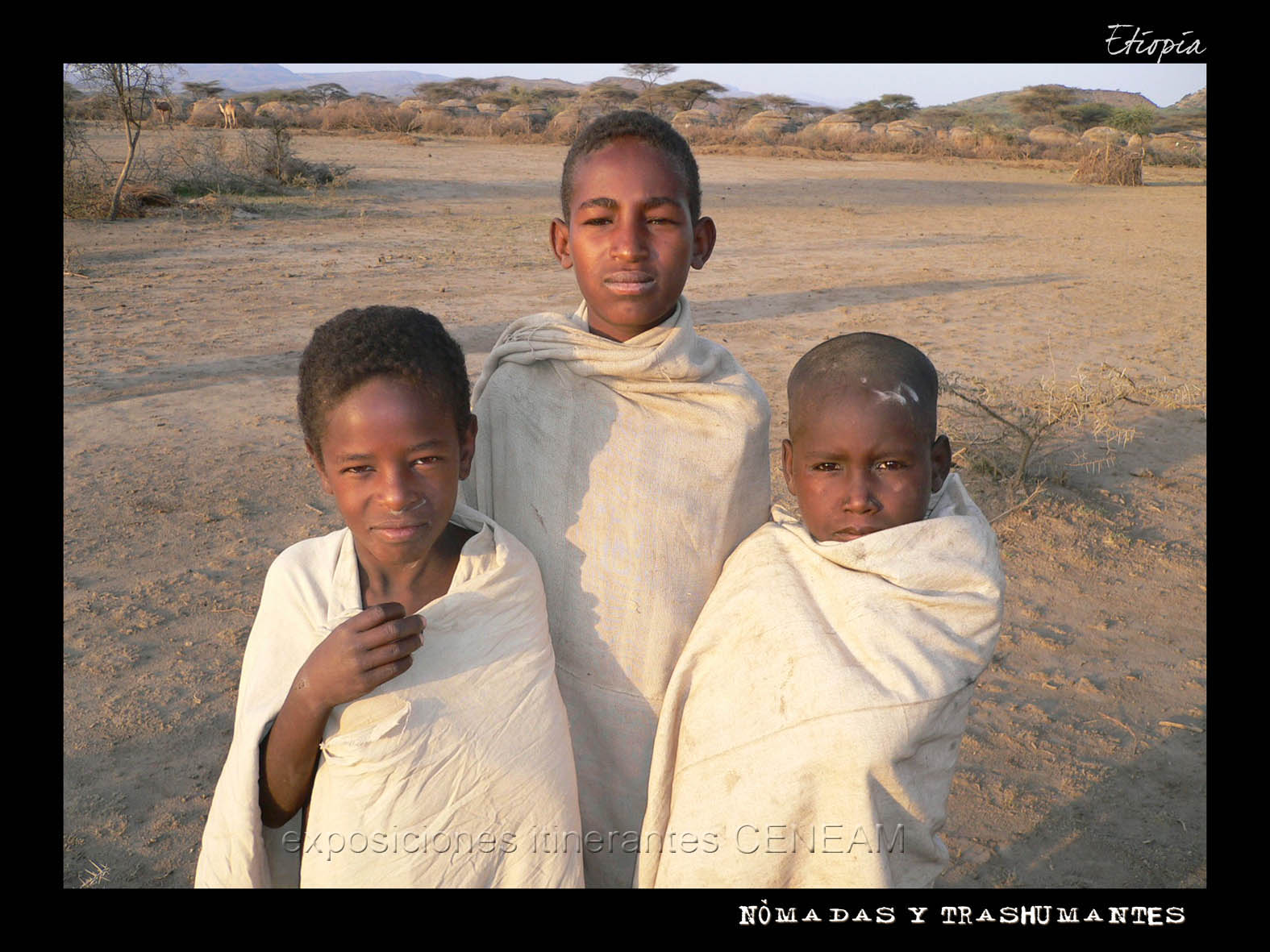 Tres niños pastores de Etiopía
Tres niños pastores de Etiopía
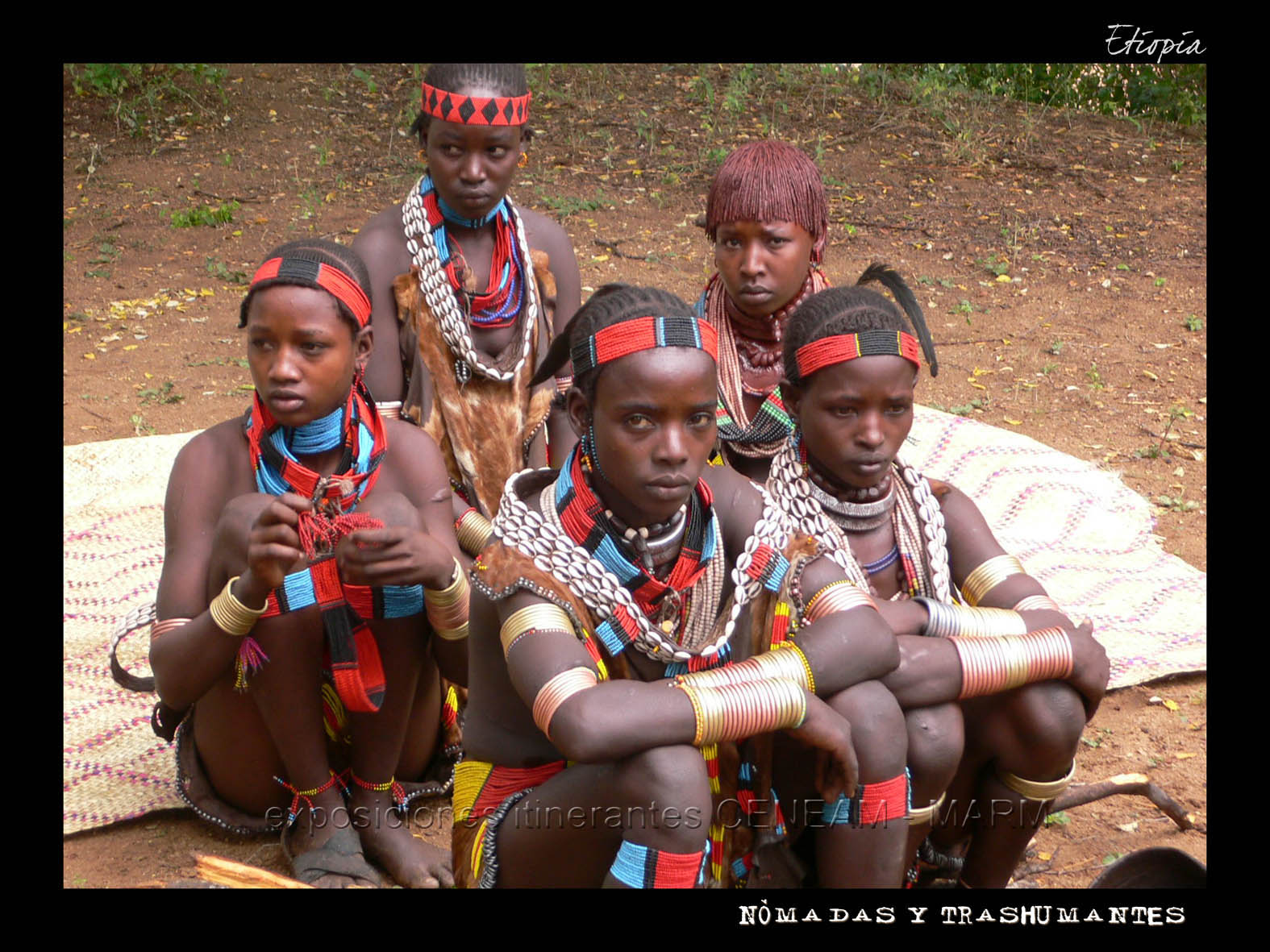 Cinco niños sentados y vestidos de manera ritual
Cinco niños sentados y vestidos de manera ritual
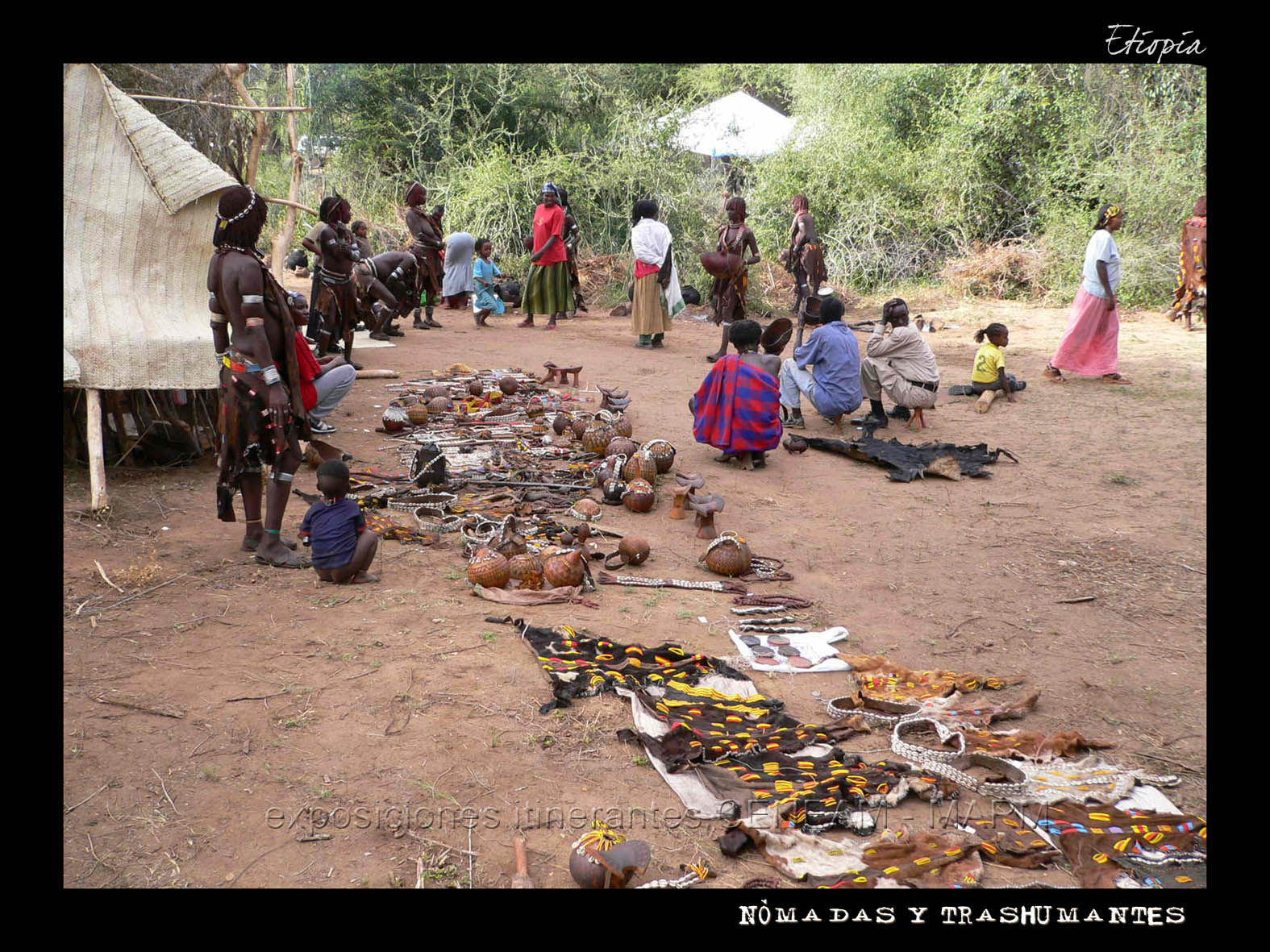 Poblado donde se ven enseres por el suelo y gente
Poblado donde se ven enseres por el suelo y gente
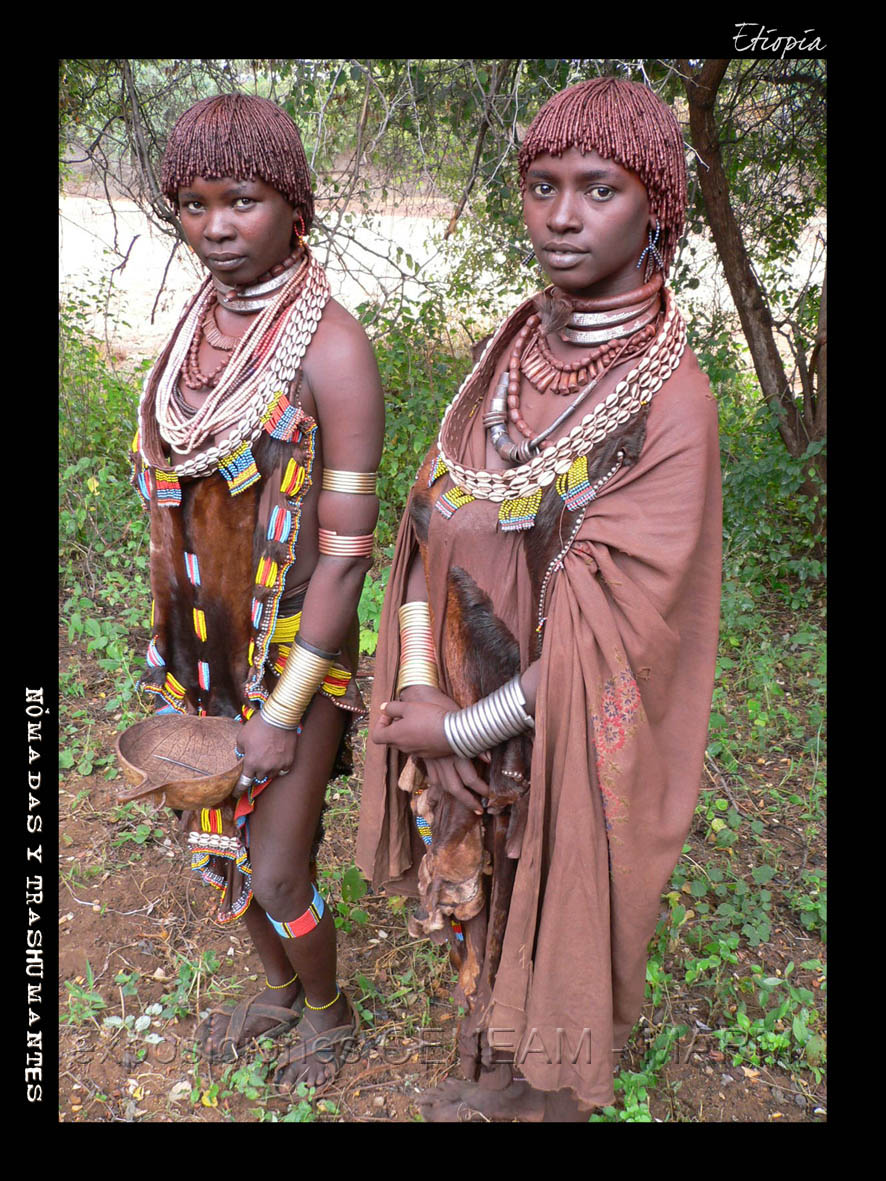 Dos pastoras etíopes ataviadas con sus mejores galas
Dos pastoras etíopes ataviadas con sus mejores galas
 Niño posando con pinturas rituales en Etiopía
Niño posando con pinturas rituales en Etiopía
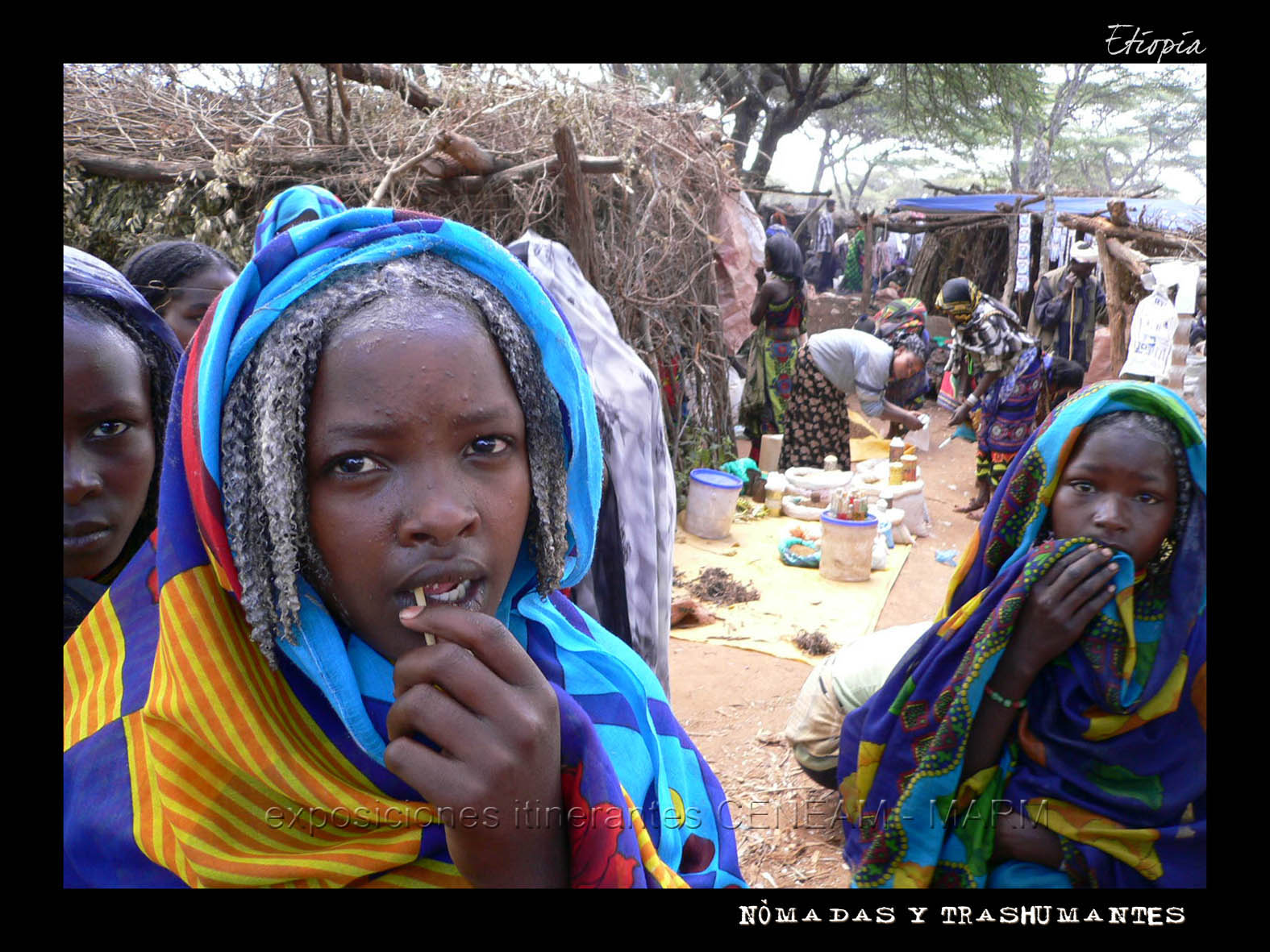 Niña en primer plano con un velo de colores en la cabeza
Niña en primer plano con un velo de colores en la cabeza
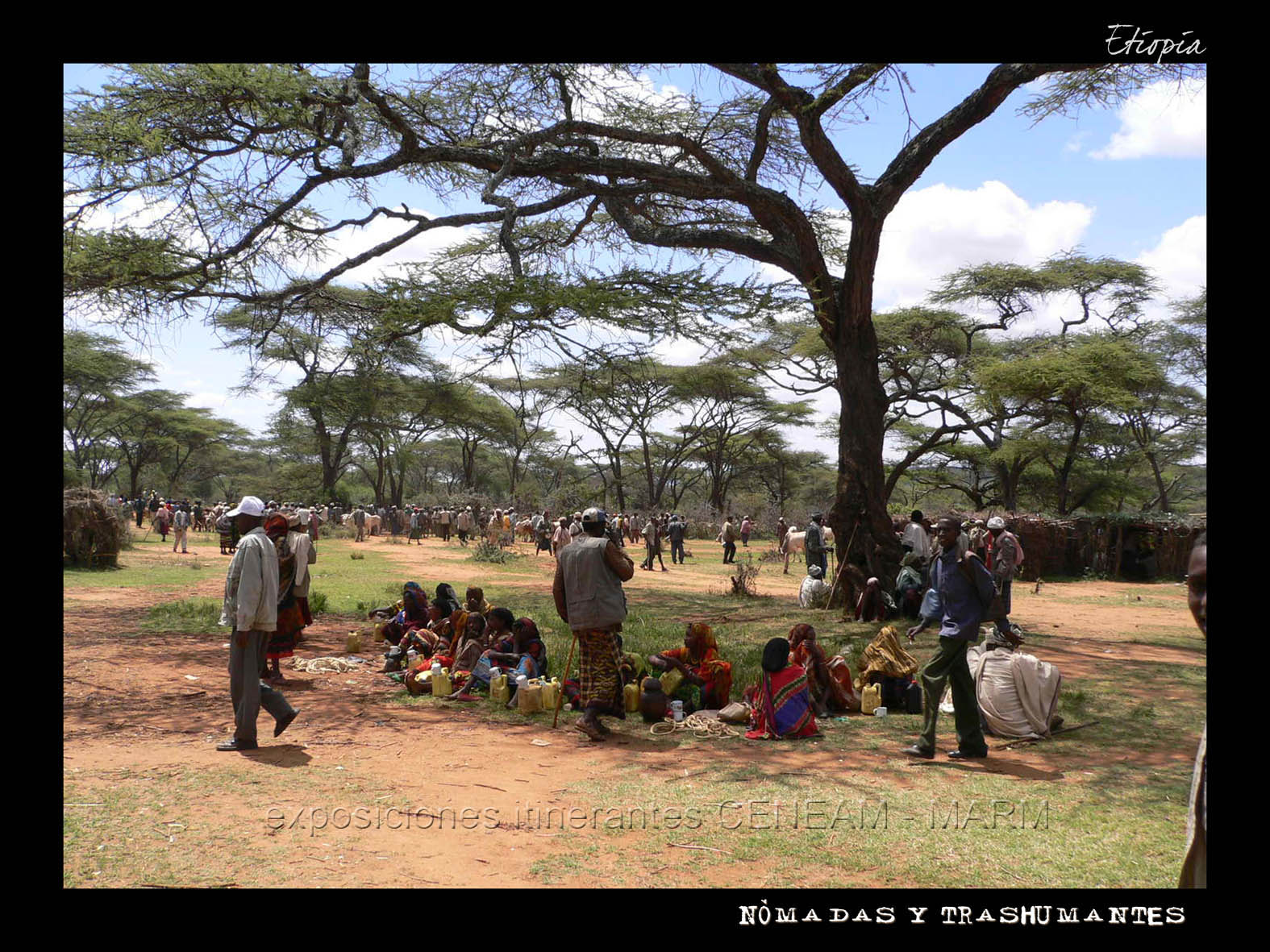 Grupo de niños reunidos con unos monitores
Grupo de niños reunidos con unos monitores
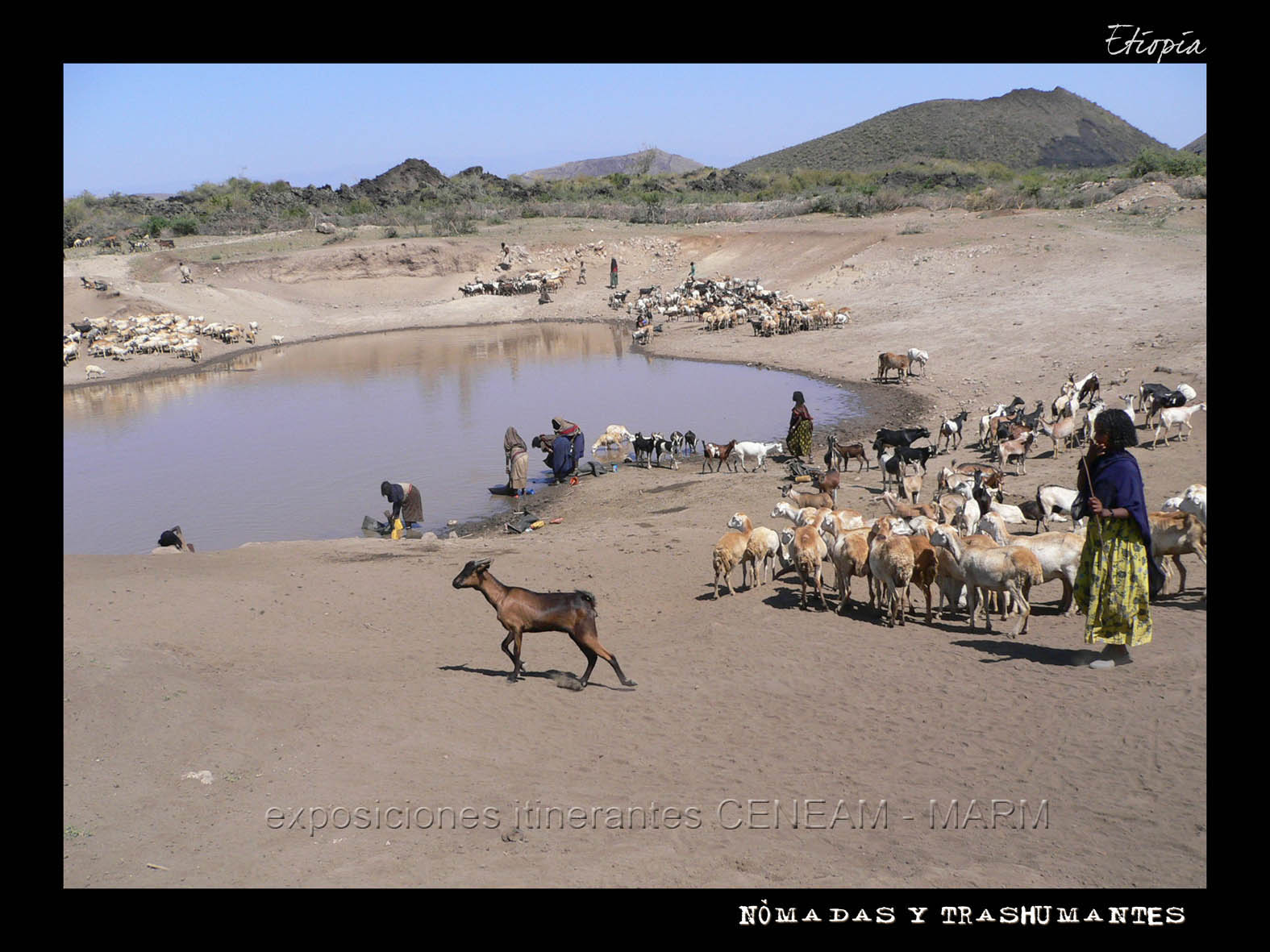 Rebaño con pastores al lago de una charca en Etiopía
Rebaño con pastores al lago de una charca en Etiopía
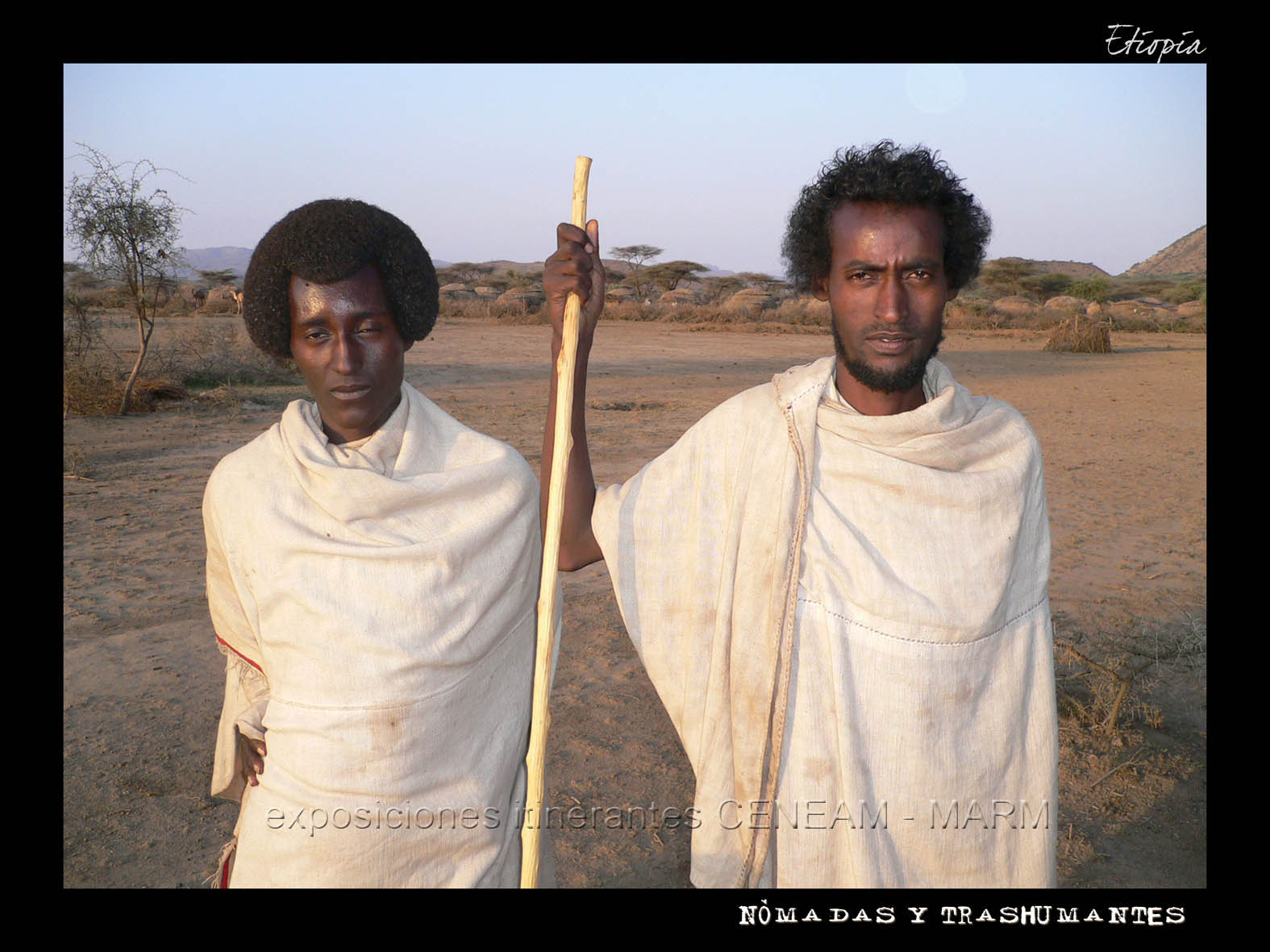 Dos pastores en primer plano
Dos pastores en primer plano
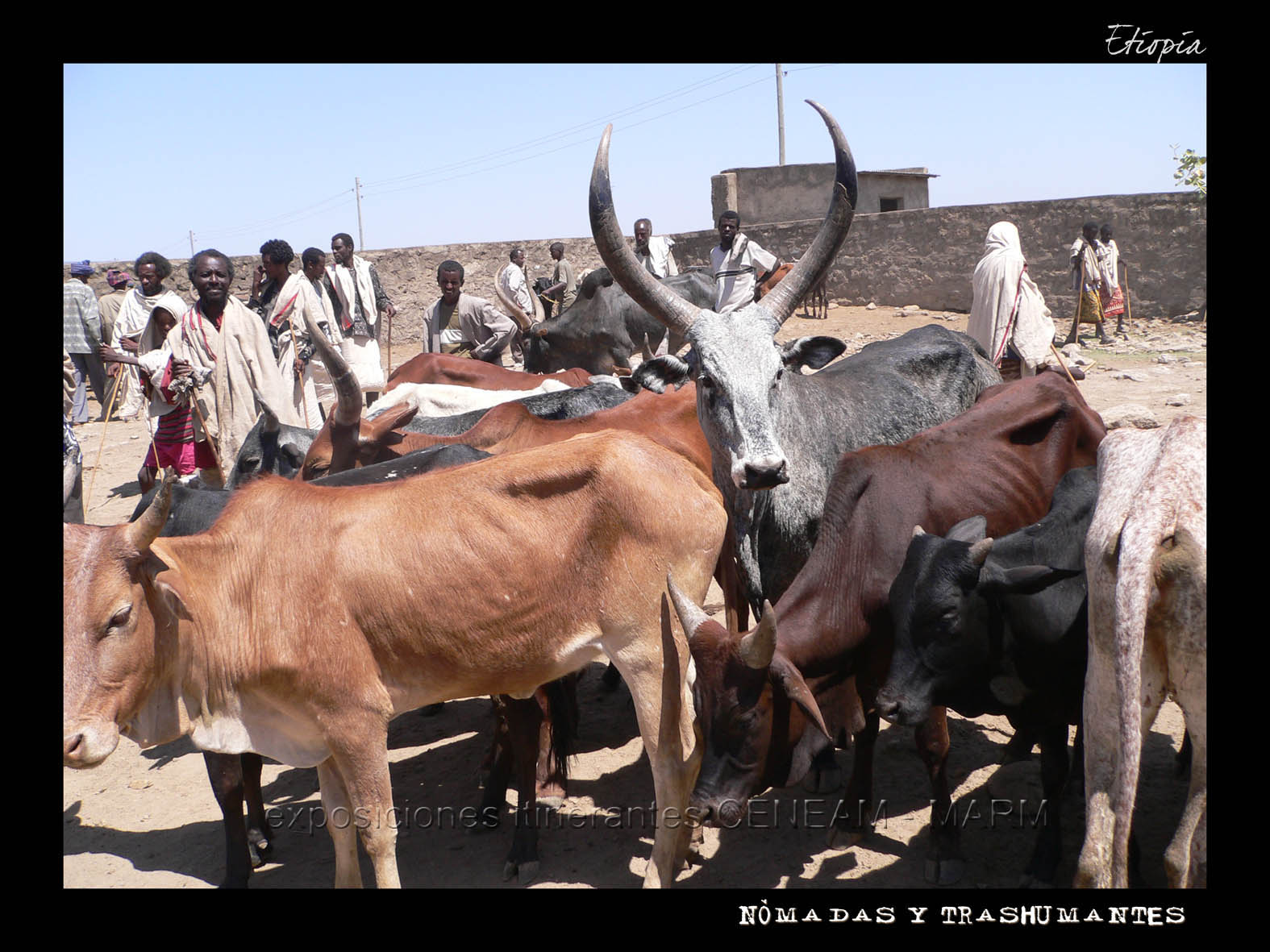 Grupo de vacas etíopes
Grupo de vacas etíopes
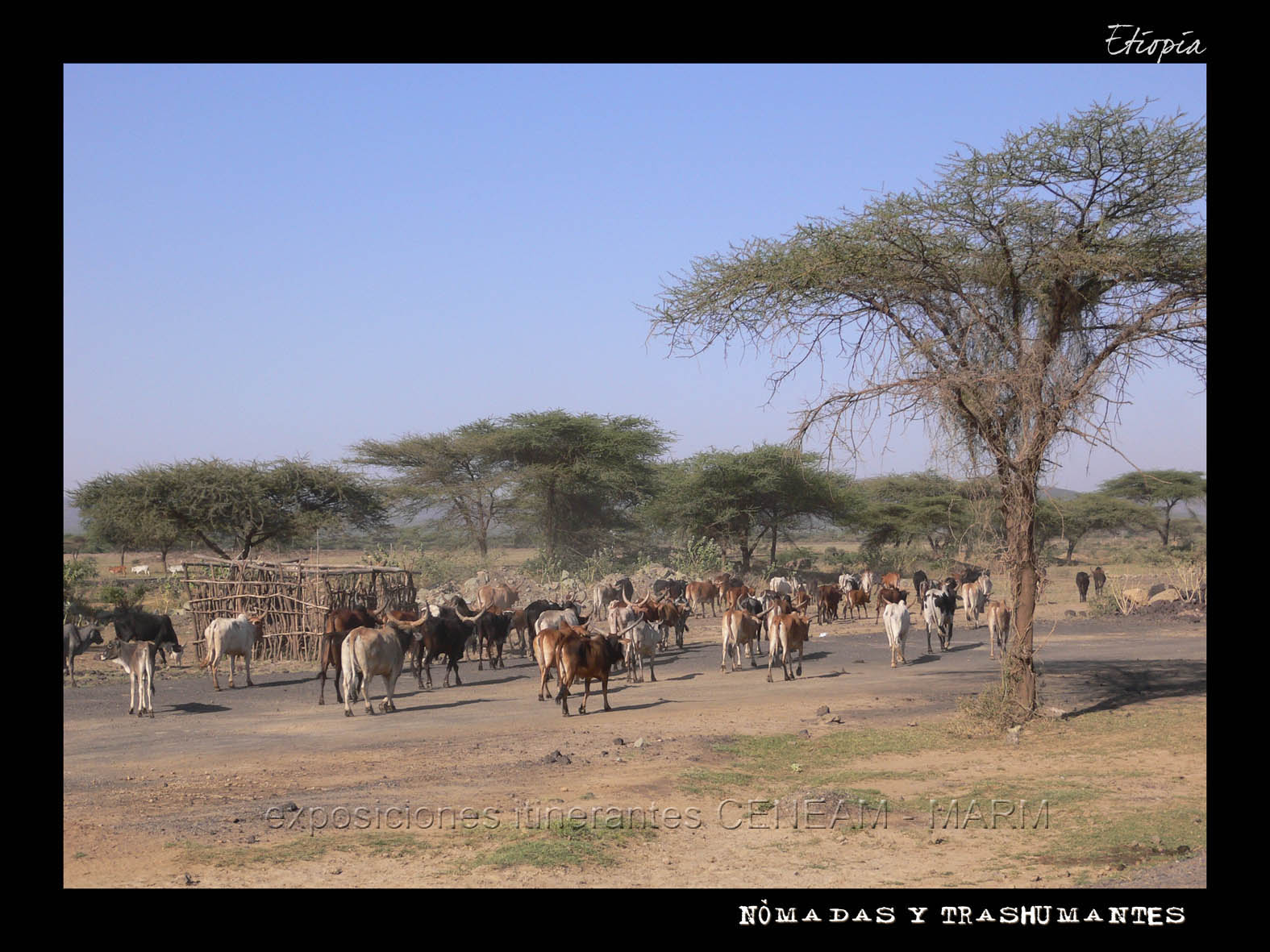 Vista lejana de un rebaño
Vista lejana de un rebaño
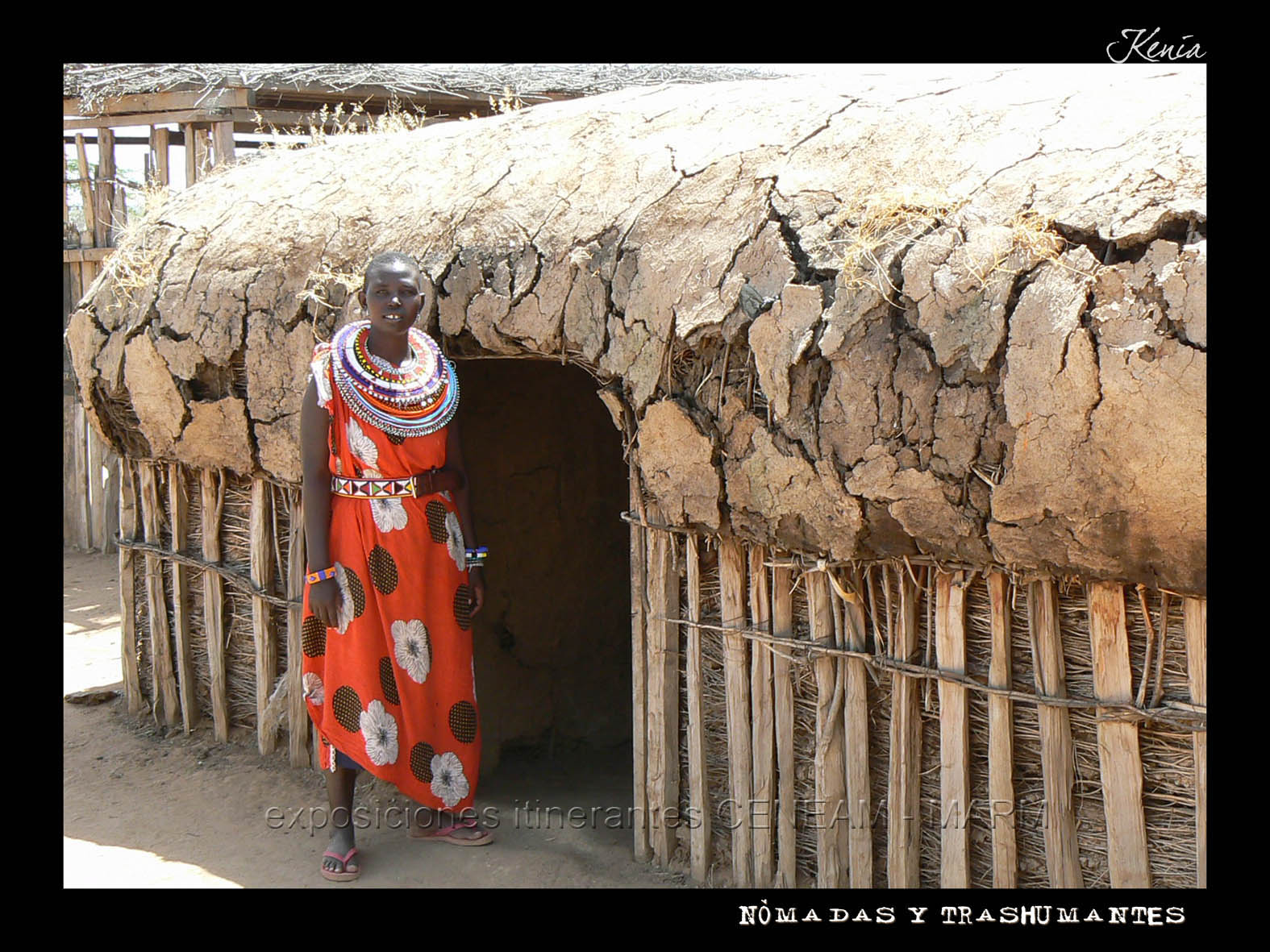 Niña con traje de colores y posando en la puerta de su cabaña
Niña con traje de colores y posando en la puerta de su cabaña
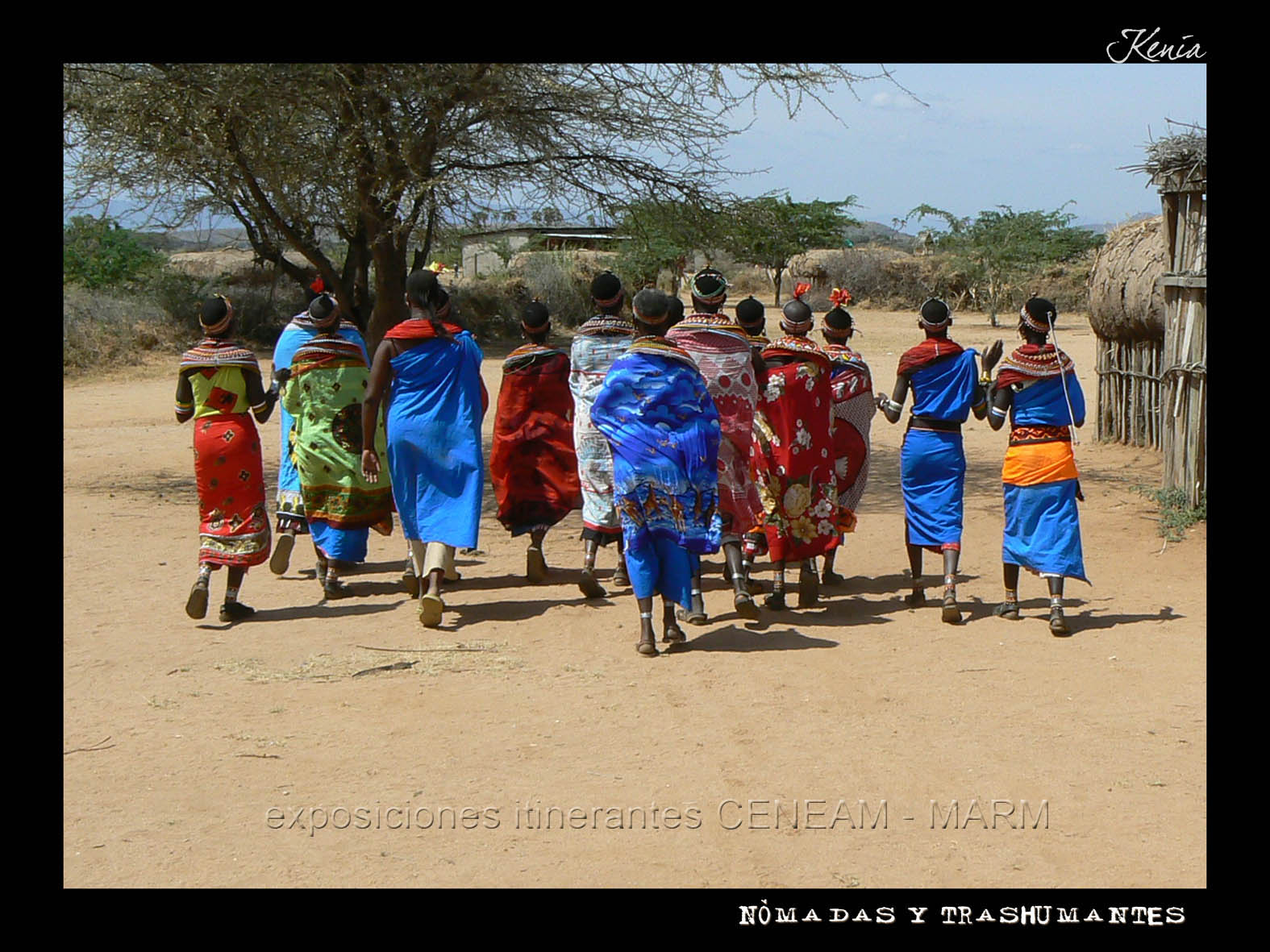 Grupo de mujeres con vestidos coloridos en Kenia
Grupo de mujeres con vestidos coloridos en Kenia
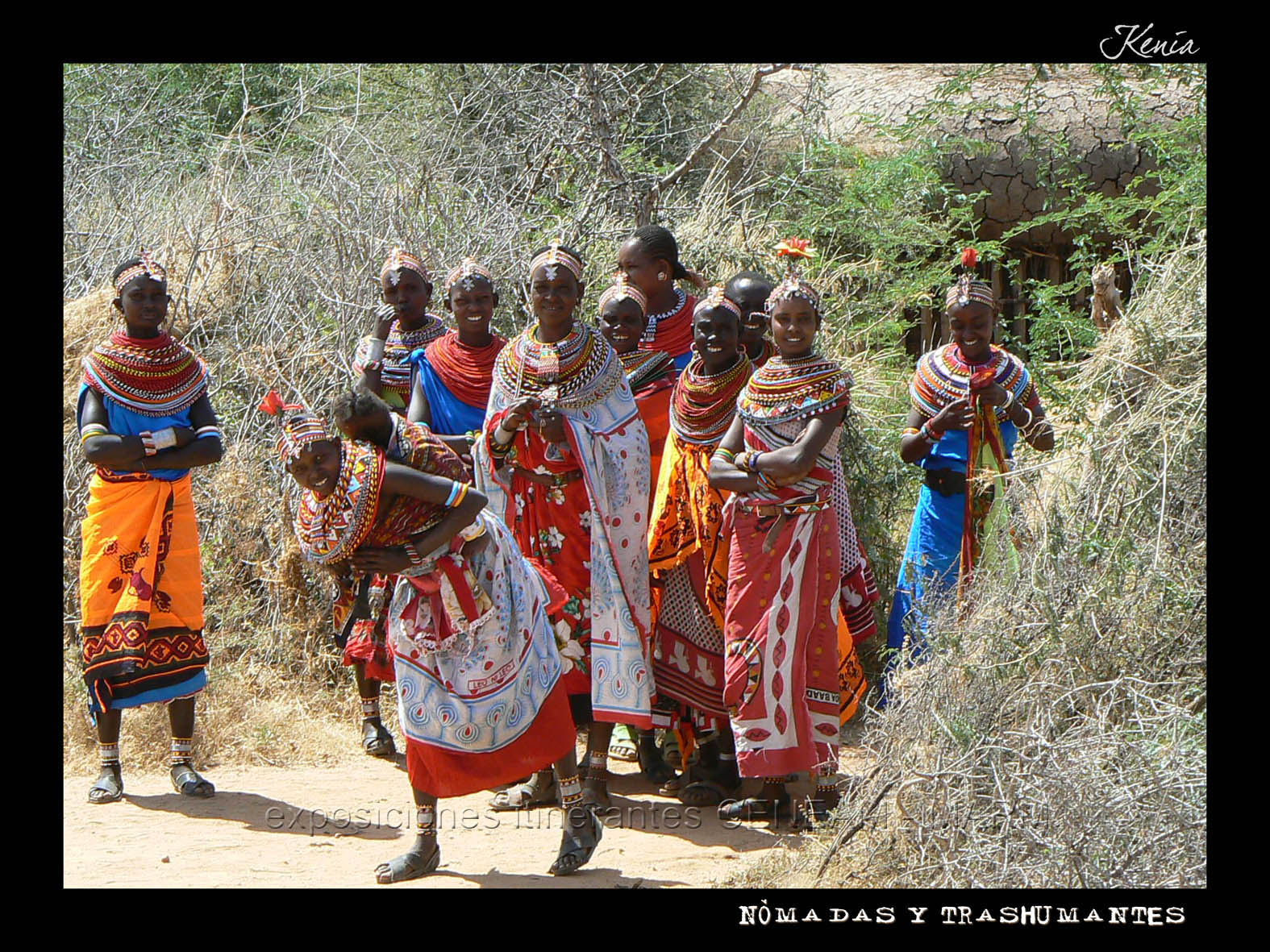 Grupo de mujeres con vestidos coloridos en Kenia
Grupo de mujeres con vestidos coloridos en Kenia
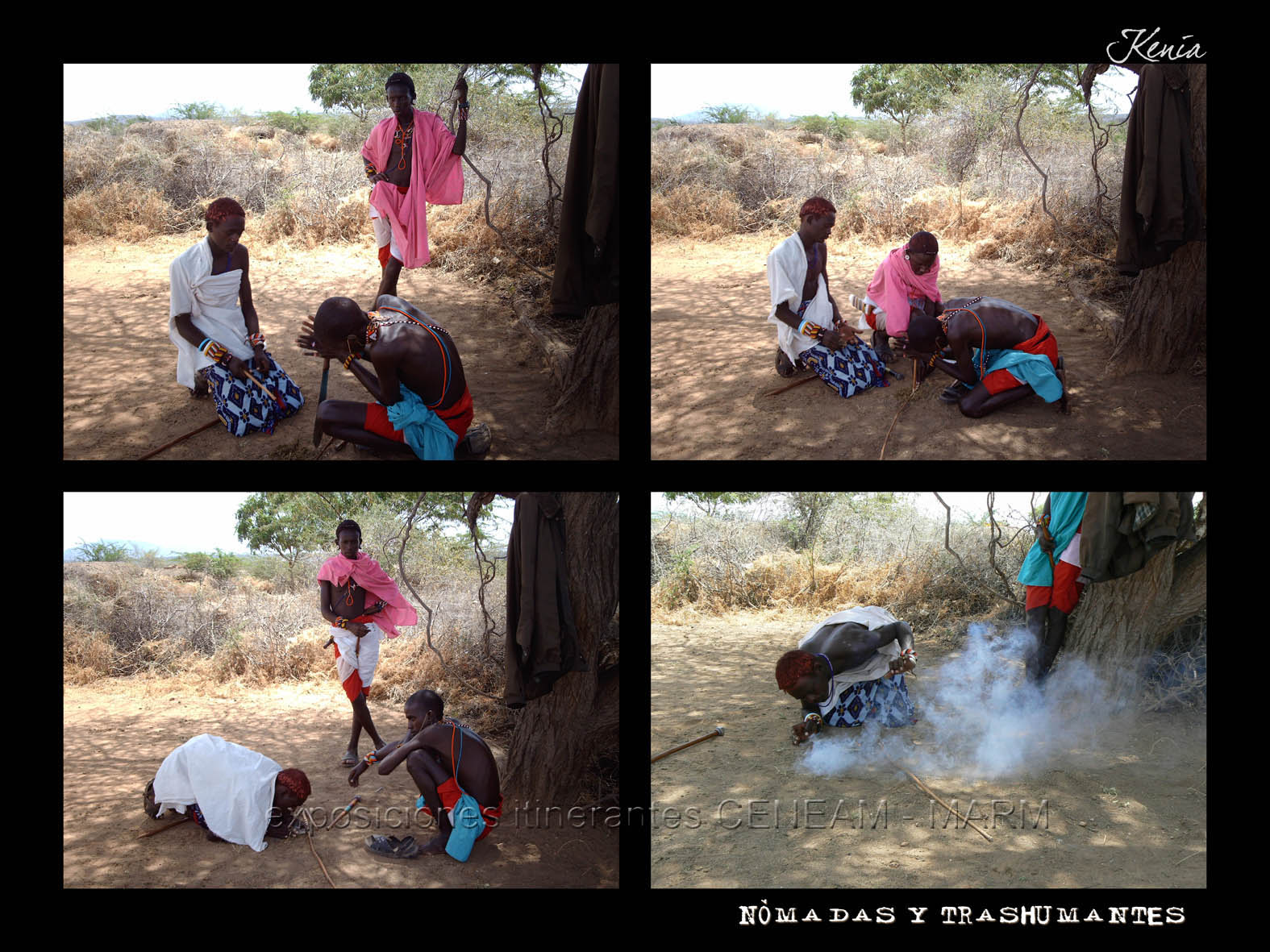 Grupo de hombres haciendo fuego en Kenia
Grupo de hombres haciendo fuego en Kenia
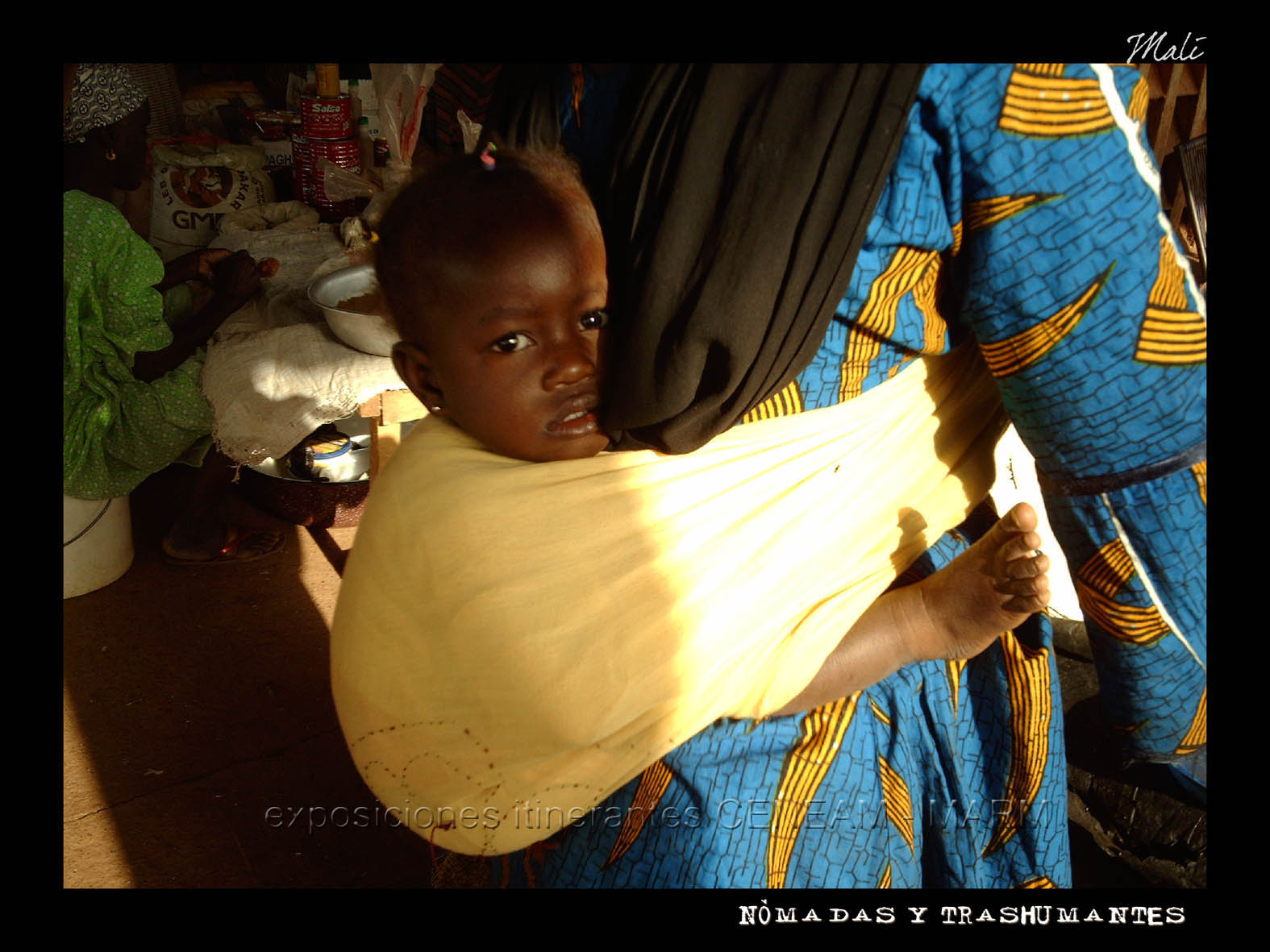 Niño en la espalda de su madre
Niño en la espalda de su madre
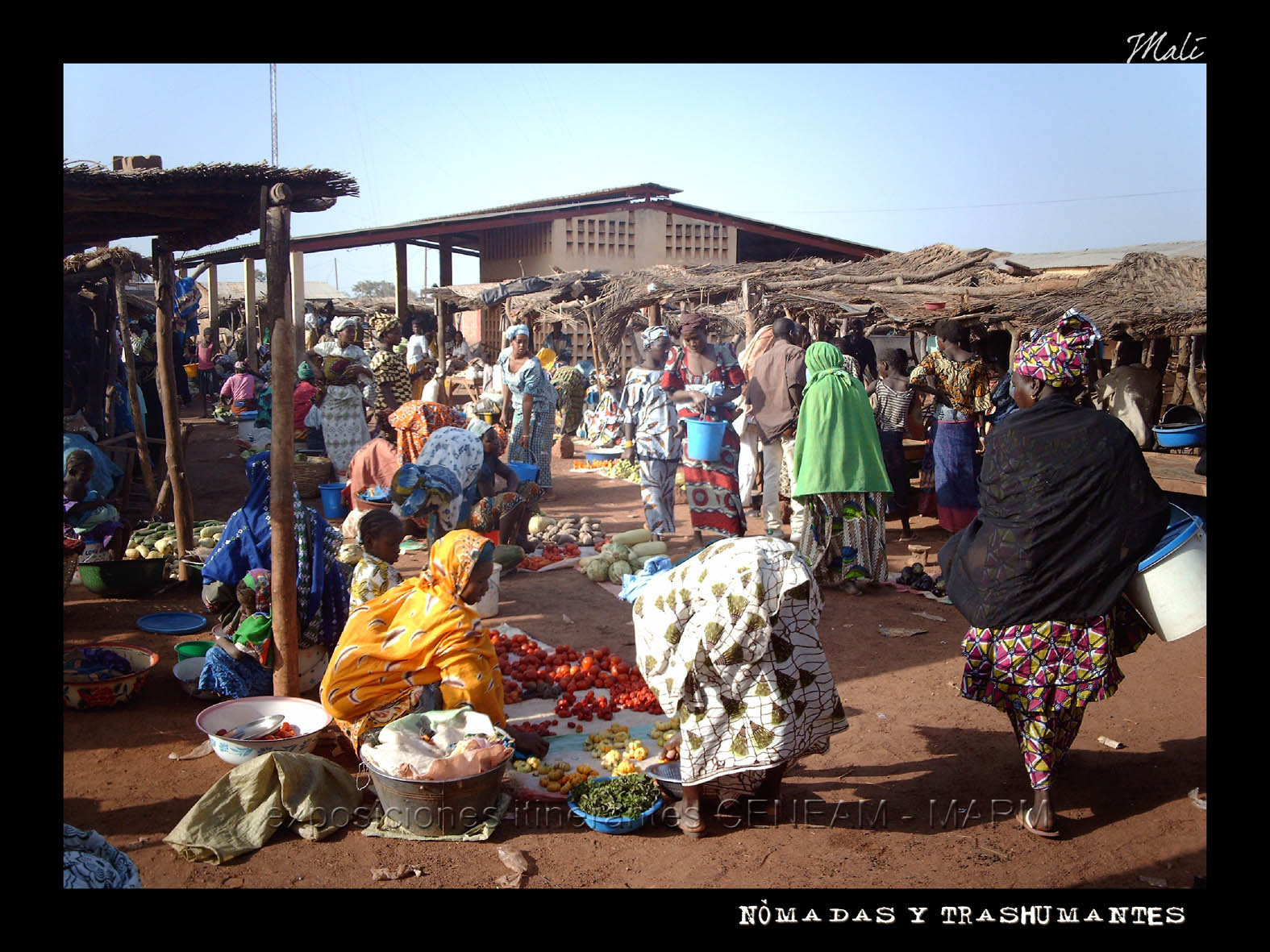 Mercadillo en Mali
Mercadillo en Mali
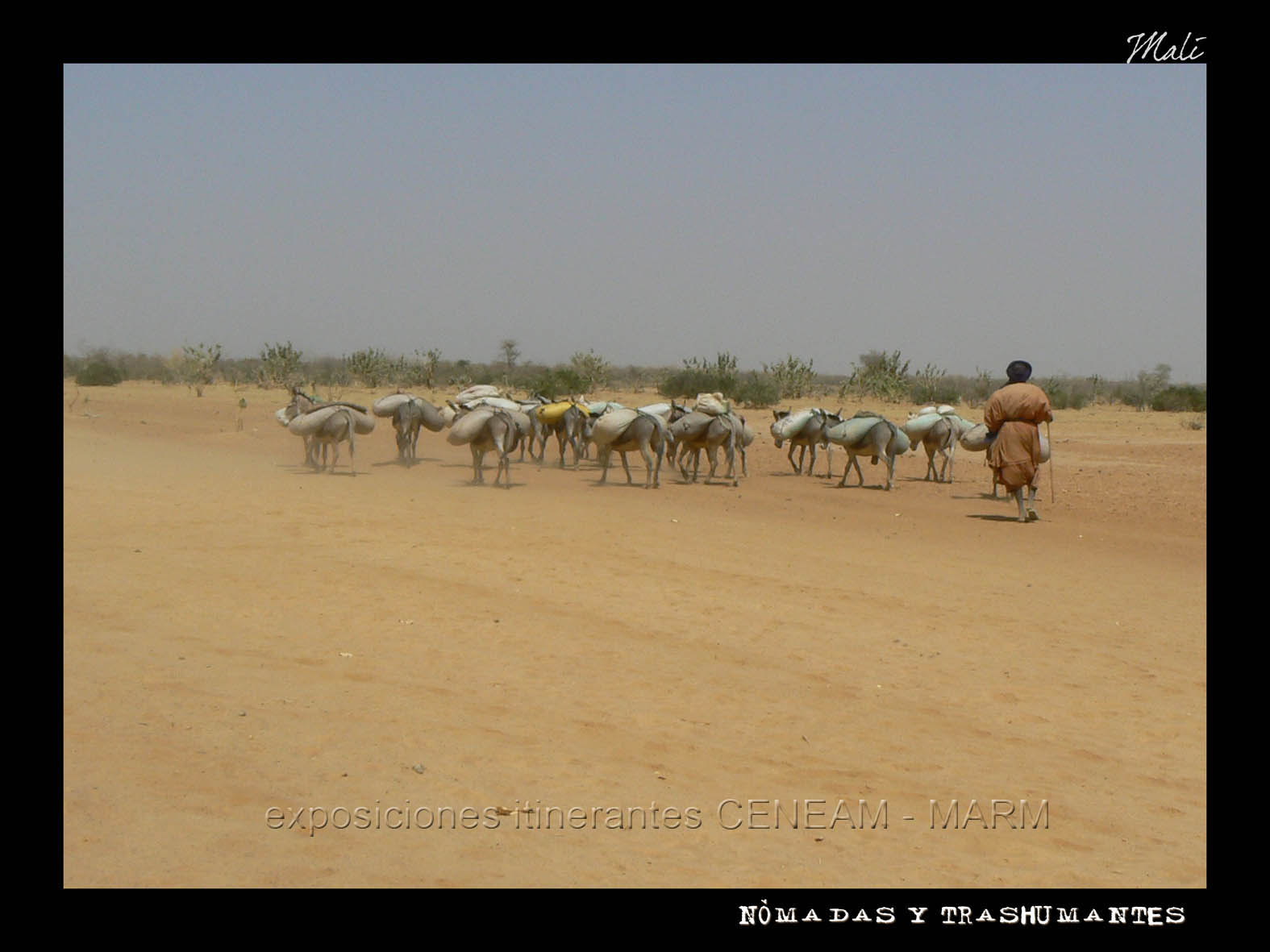 Animales transportando sacos en los lomos y pastor guiándolos
Animales transportando sacos en los lomos y pastor guiándolos
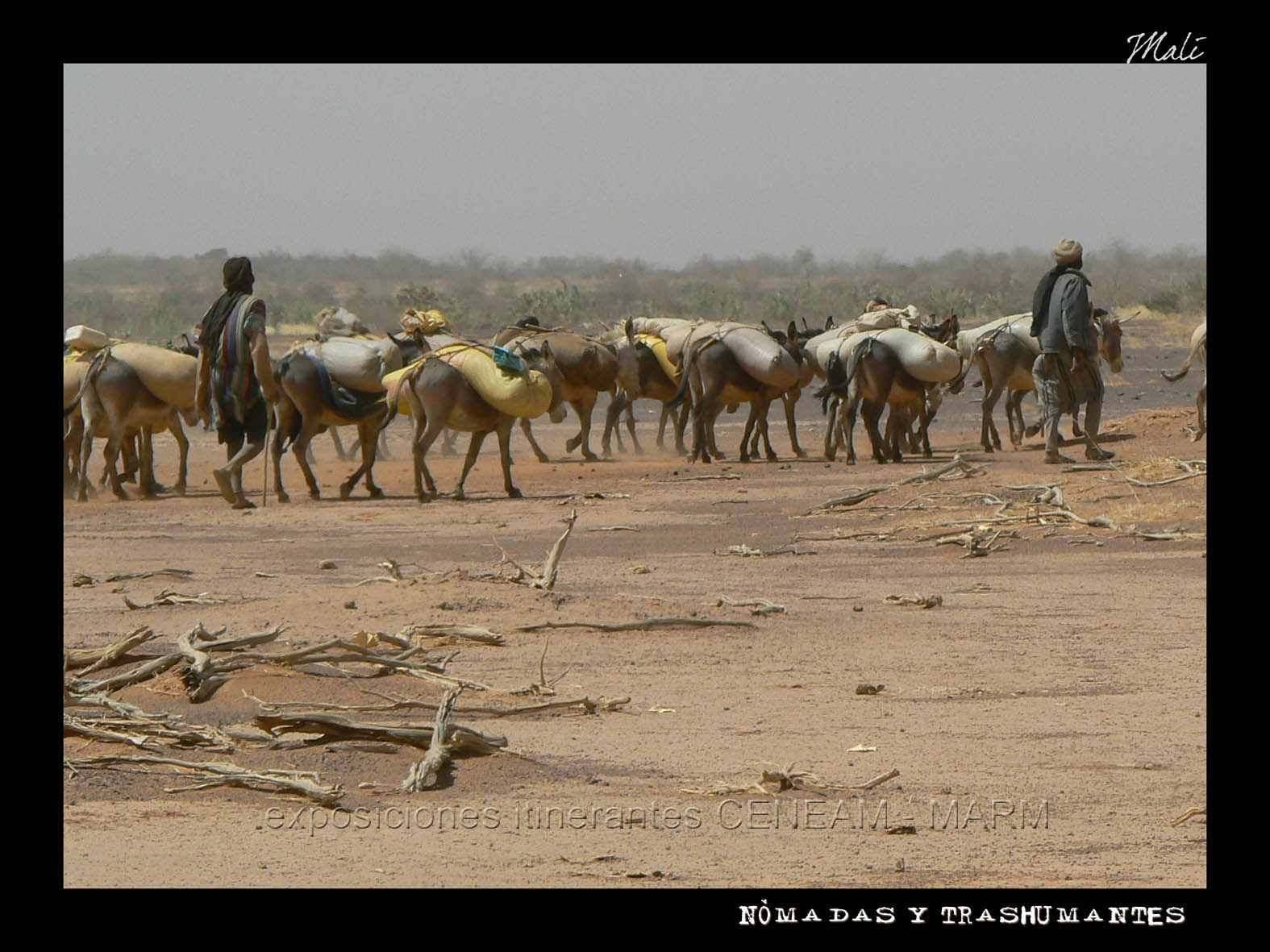 Animales transportando sacos en los lomos y pastor guiándolos
Animales transportando sacos en los lomos y pastor guiándolos
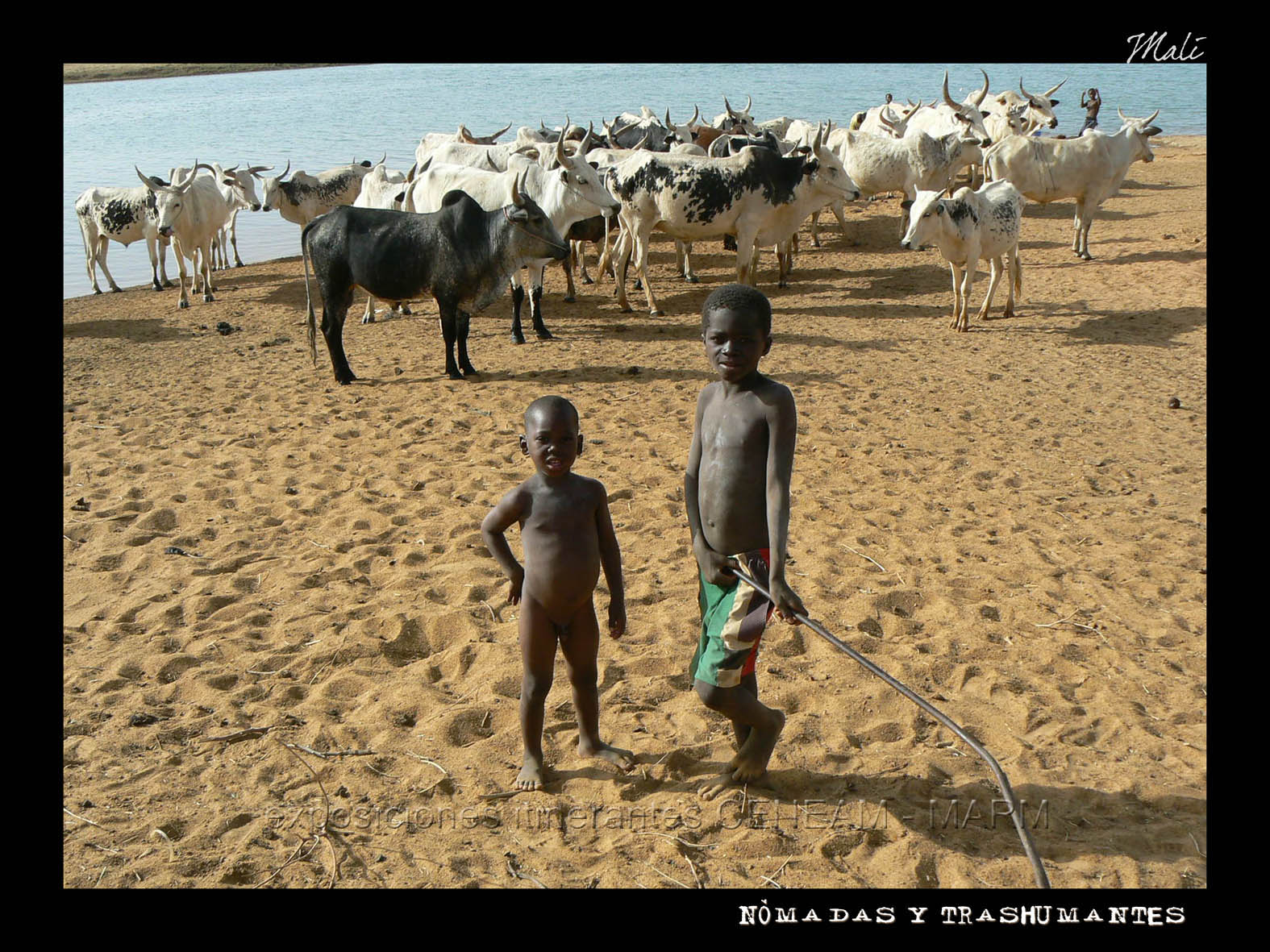 Un par de niños al frente y al fondo el rebaño en Mali
Un par de niños al frente y al fondo el rebaño en Mali
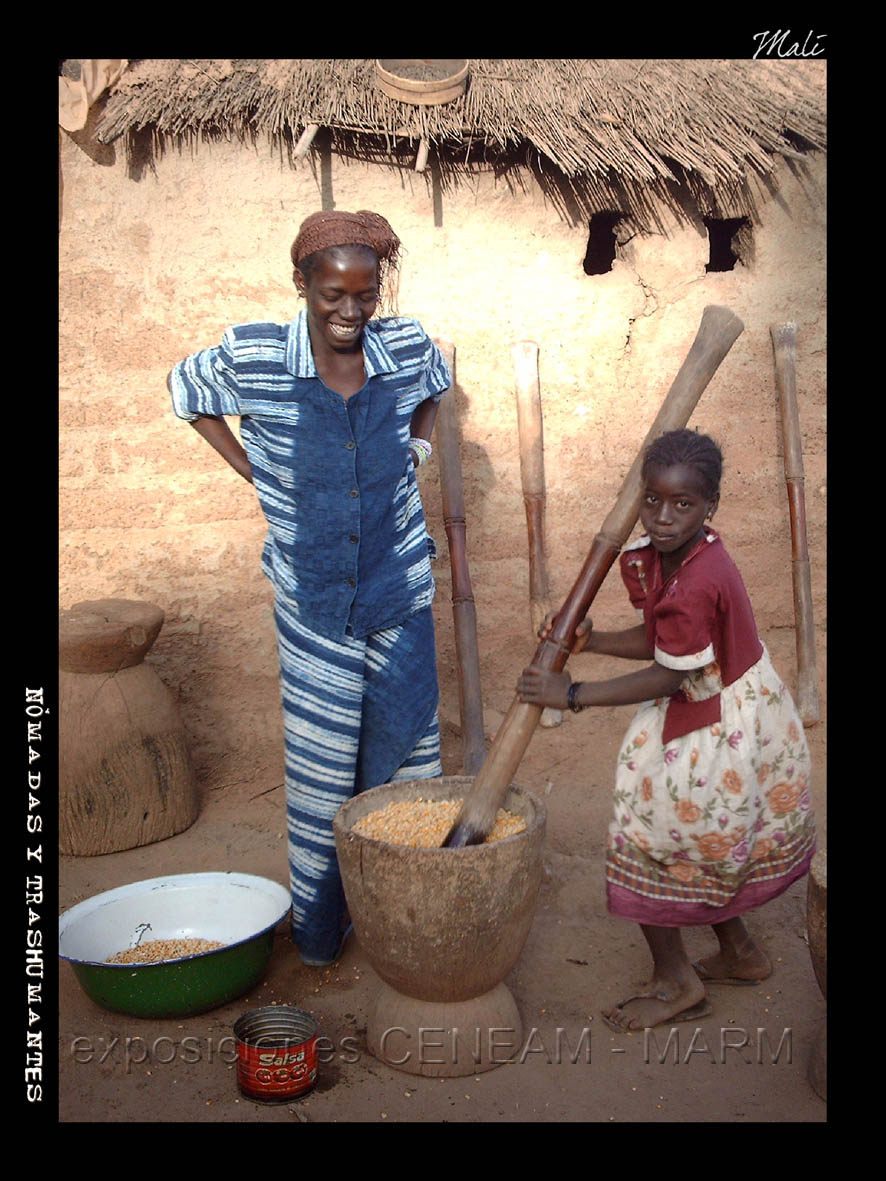 Madre e hijo machacando grano en Mali
Madre e hijo machacando grano en Mali
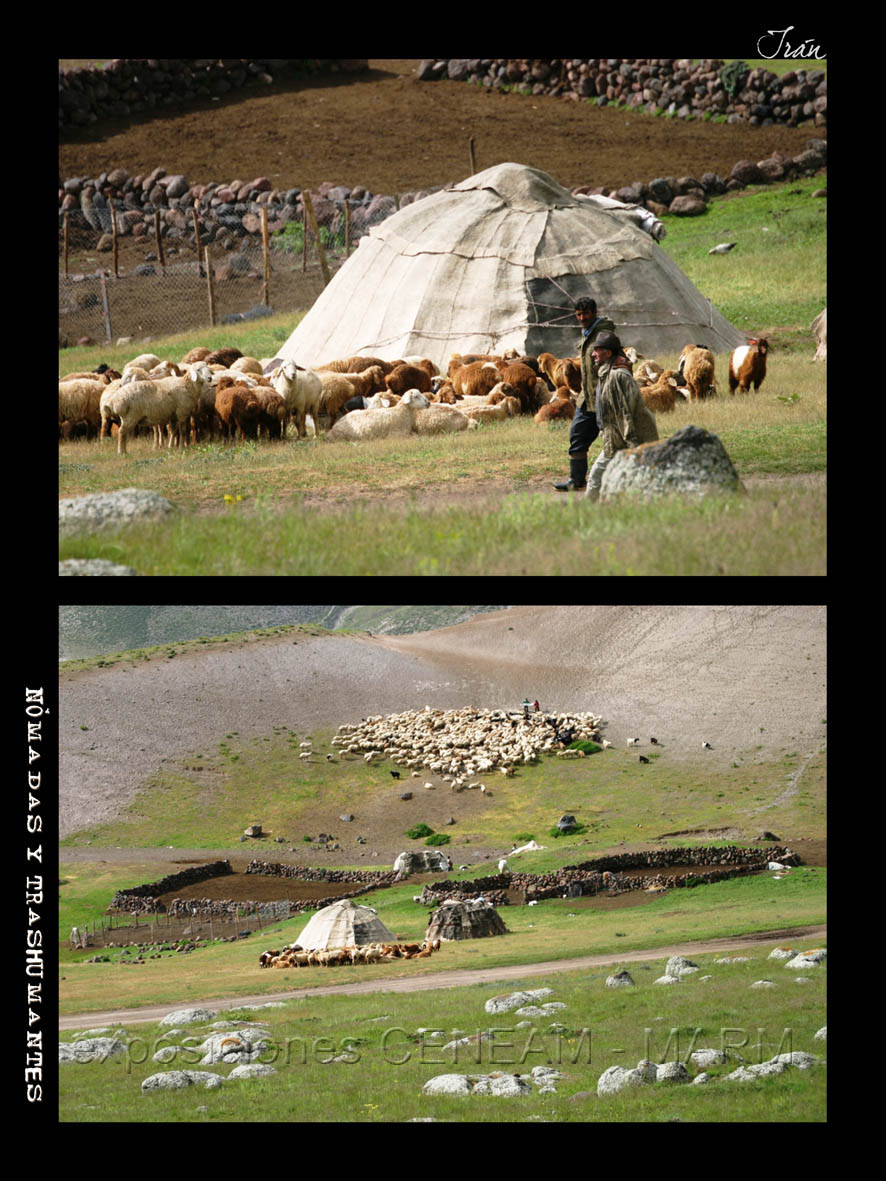 Dos fotos de un asentamiento temporal con rebaños en Irán
Dos fotos de un asentamiento temporal con rebaños en Irán
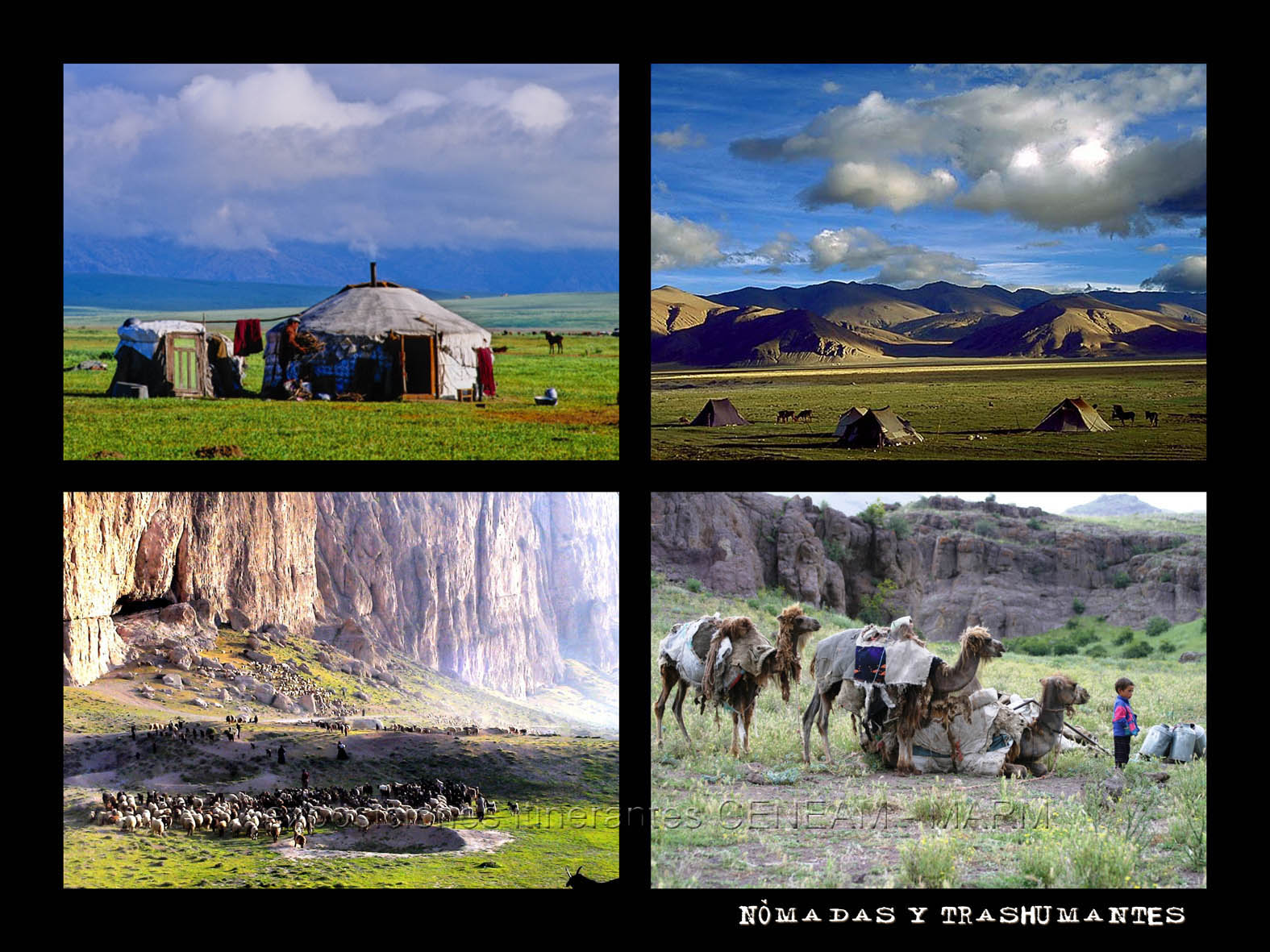 Cuatro imágenes en la misma foto de diversos tipos de cabañas y rebaños
Cuatro imágenes en la misma foto de diversos tipos de cabañas y rebaños
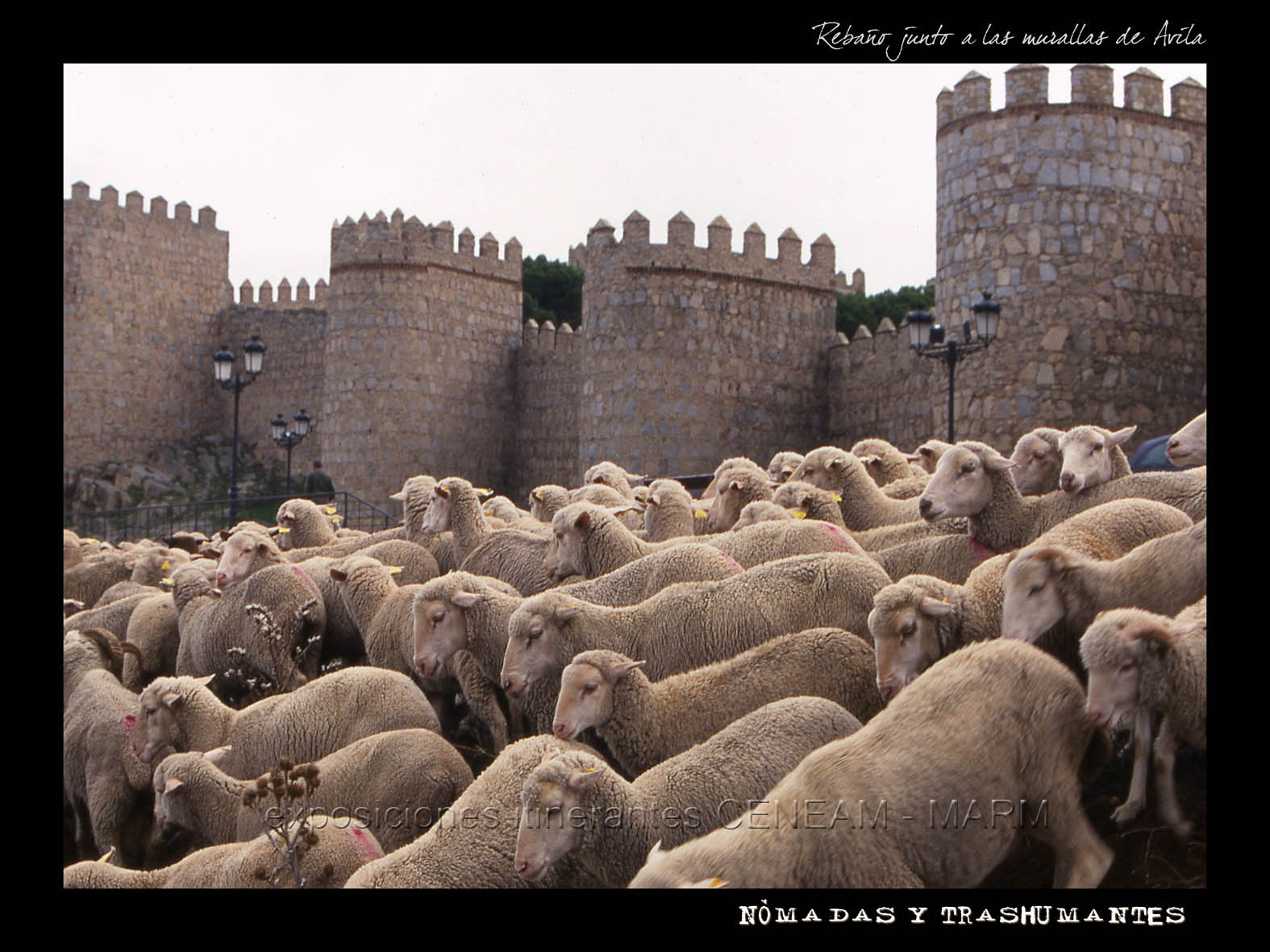 Rebaño de ovejas y al fondo la muralla de Ávila
Rebaño de ovejas y al fondo la muralla de Ávila
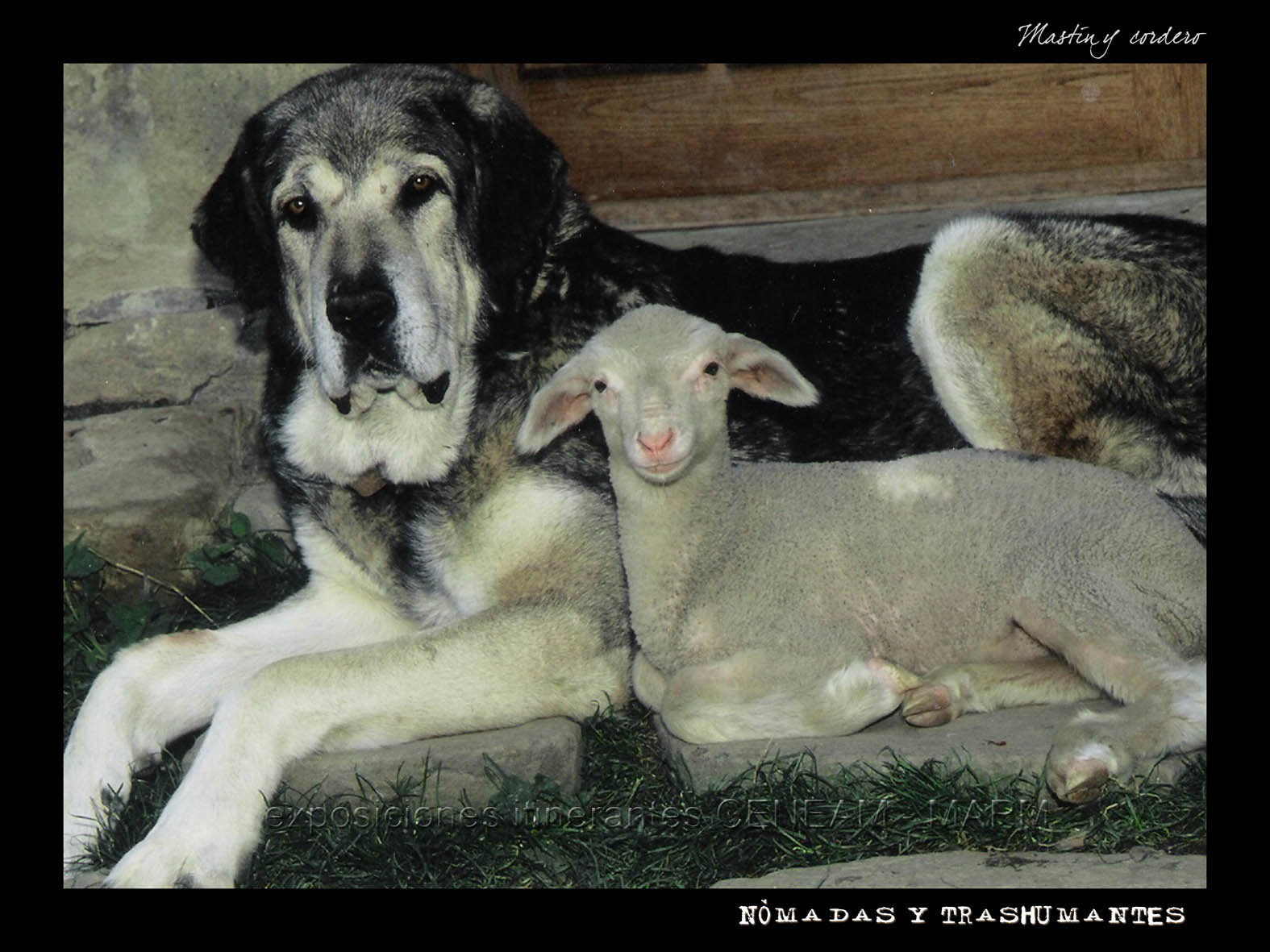 Mastín tumbado y cordero apoyado sobre él
Mastín tumbado y cordero apoyado sobre él
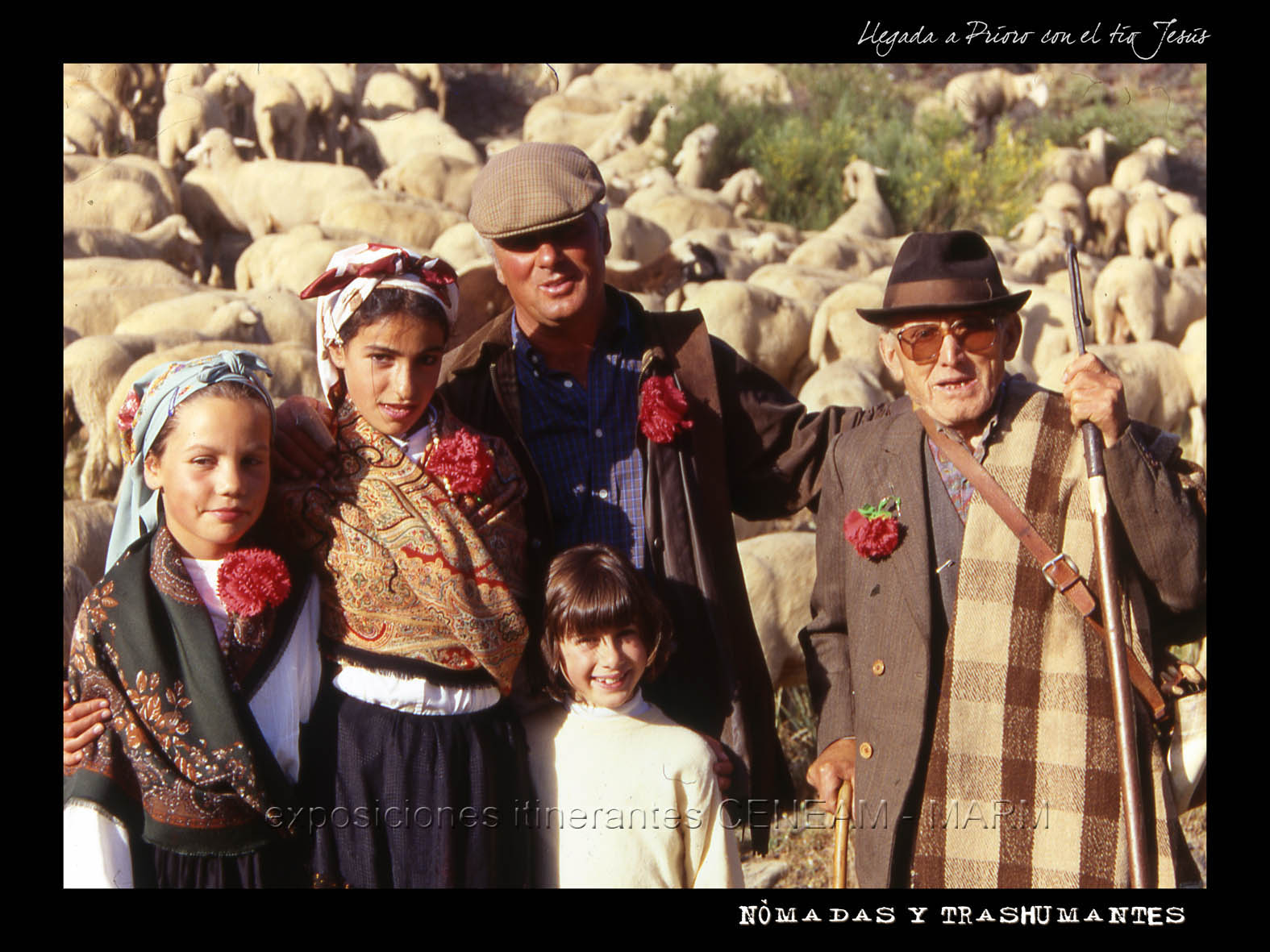 La familia del tío Jesús junto a su rebaño
La familia del tío Jesús junto a su rebaño
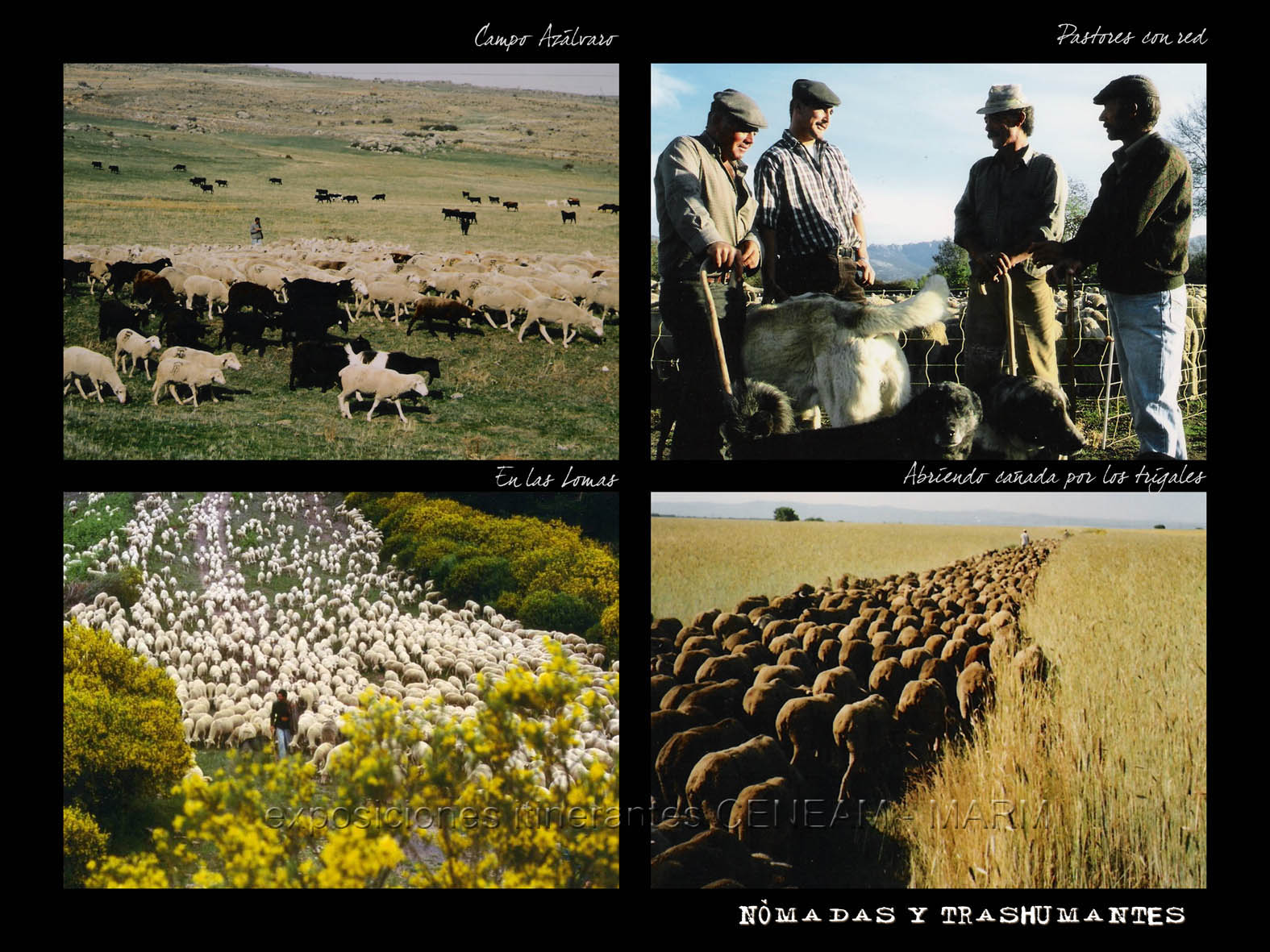 Grupo de cuatro fotos donde podemos ver rebaños y un grupo de pastores reunidos
Grupo de cuatro fotos donde podemos ver rebaños y un grupo de pastores reunidos
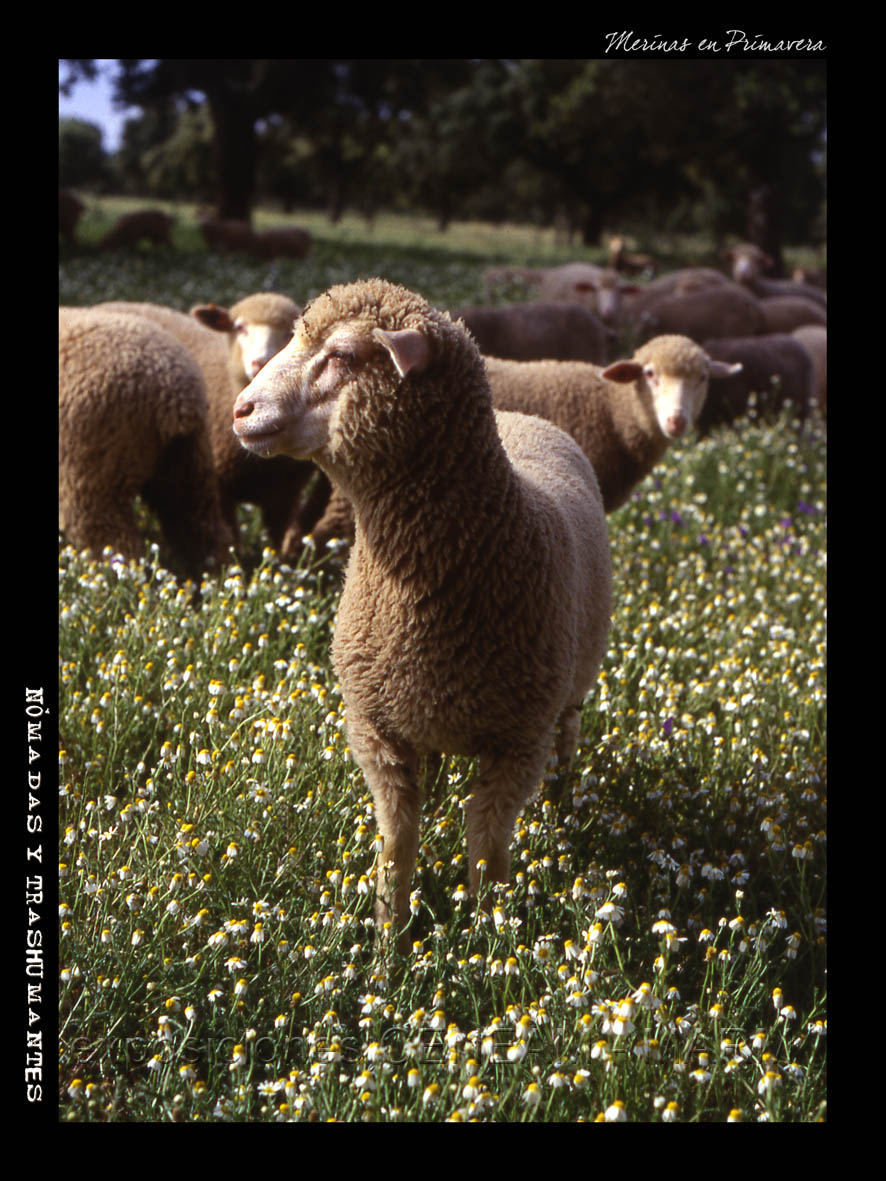 Primer plano de una oveja merina
Primer plano de una oveja merina
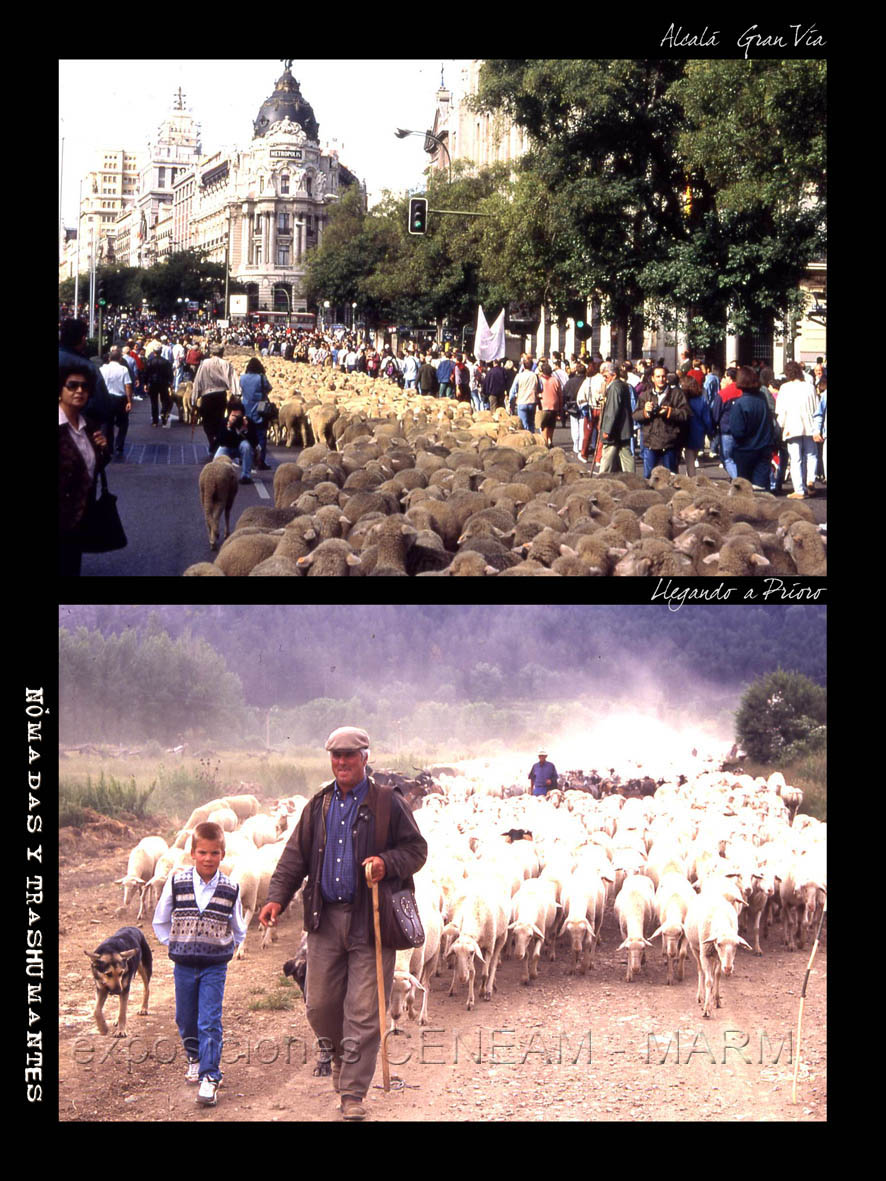 Dos fotos, una de un rebaño quiado por un pastor y su hijo. Otra con un rebaño pasando por Gran Vía
Dos fotos, una de un rebaño quiado por un pastor y su hijo. Otra con un rebaño pasando por Gran Vía
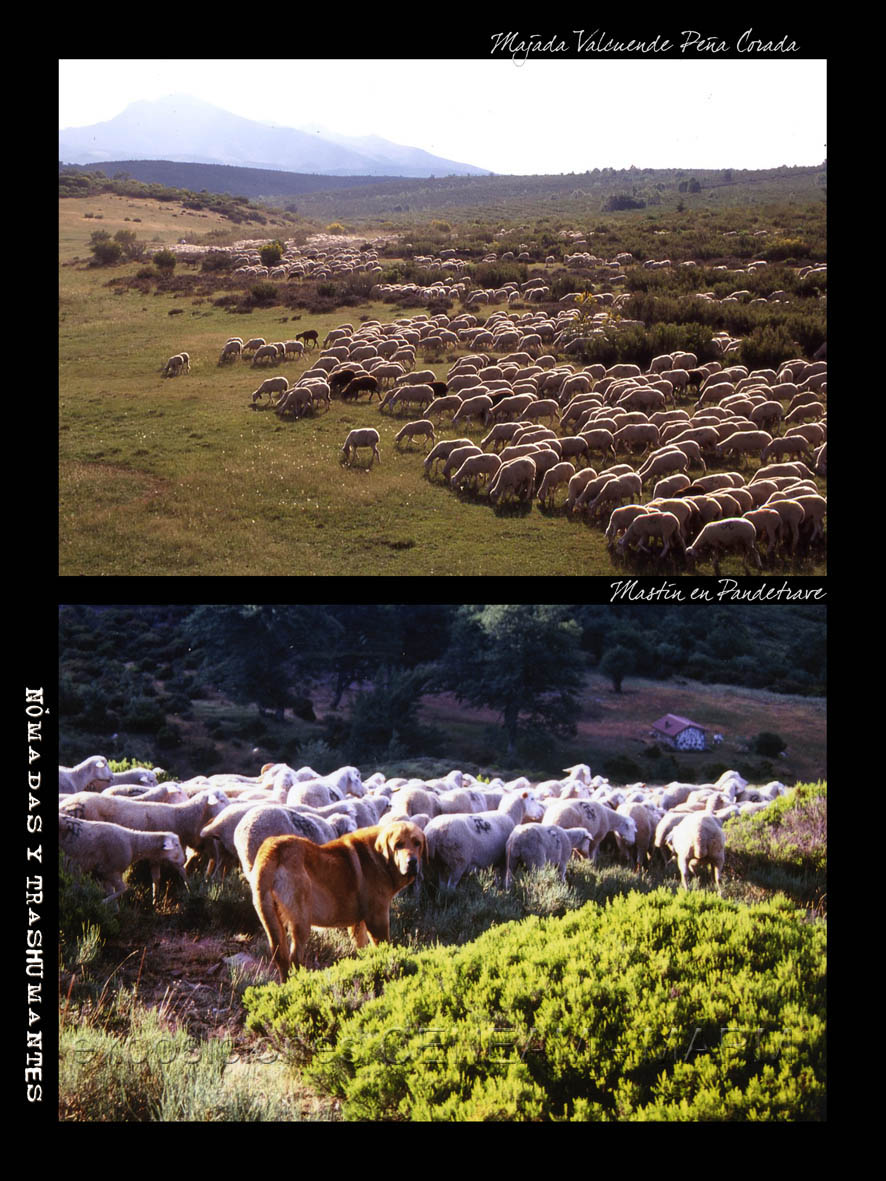 Dos fotos en el mismo cuadro donde aparece un mastín cuidando un rebaño, y en la otra sólo el rebaño
Dos fotos en el mismo cuadro donde aparece un mastín cuidando un rebaño, y en la otra sólo el rebaño
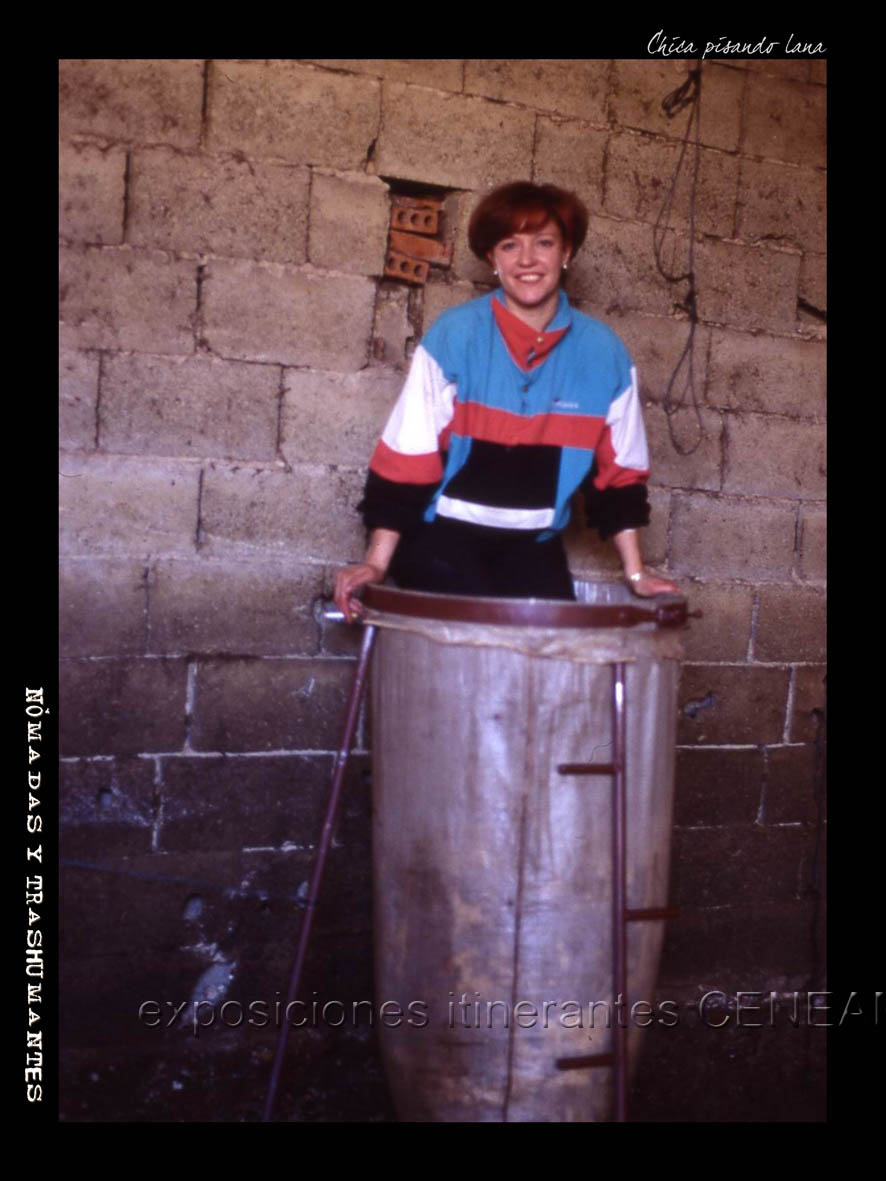 Foto donde aparece una chica pisando lana
Foto donde aparece una chica pisando lana
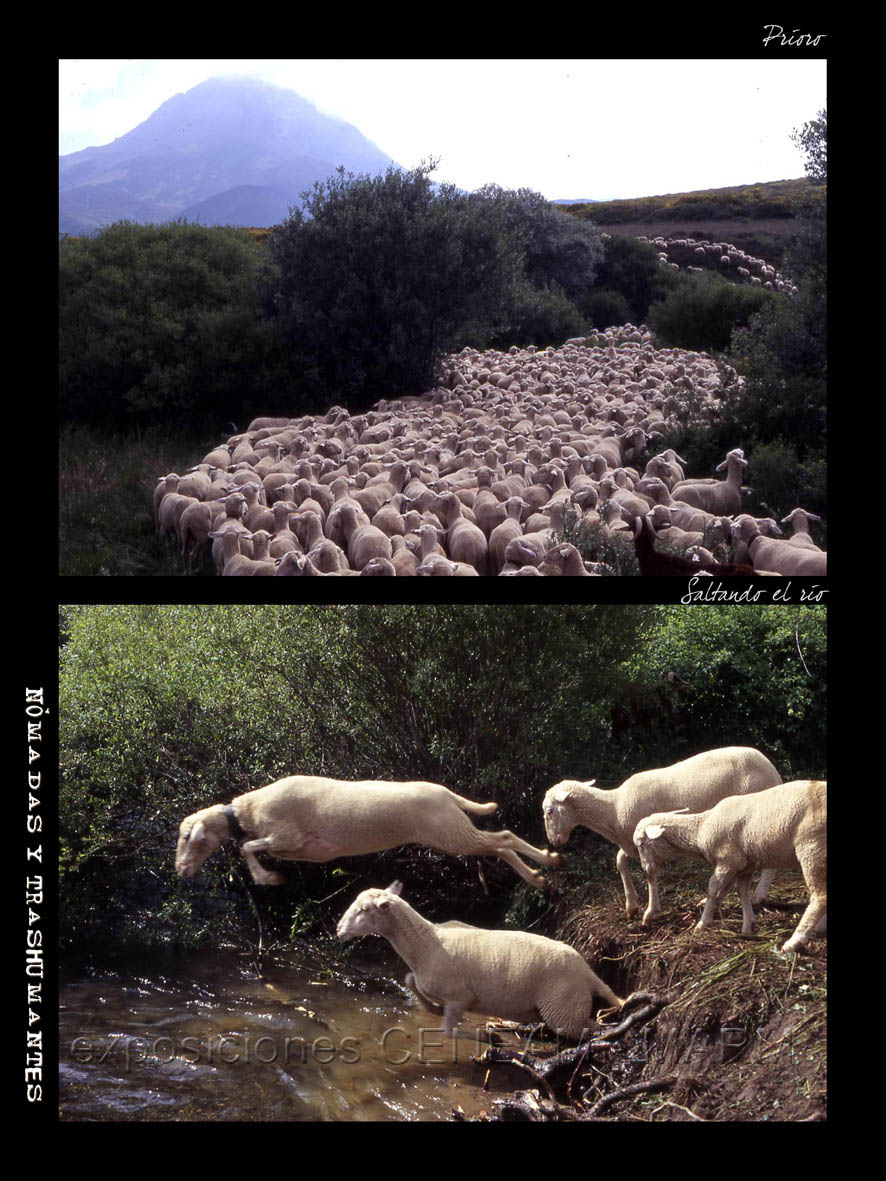 Dos fotos, una de un rebaño y otra de unas ovejas saltando un riachuelo
Dos fotos, una de un rebaño y otra de unas ovejas saltando un riachuelo
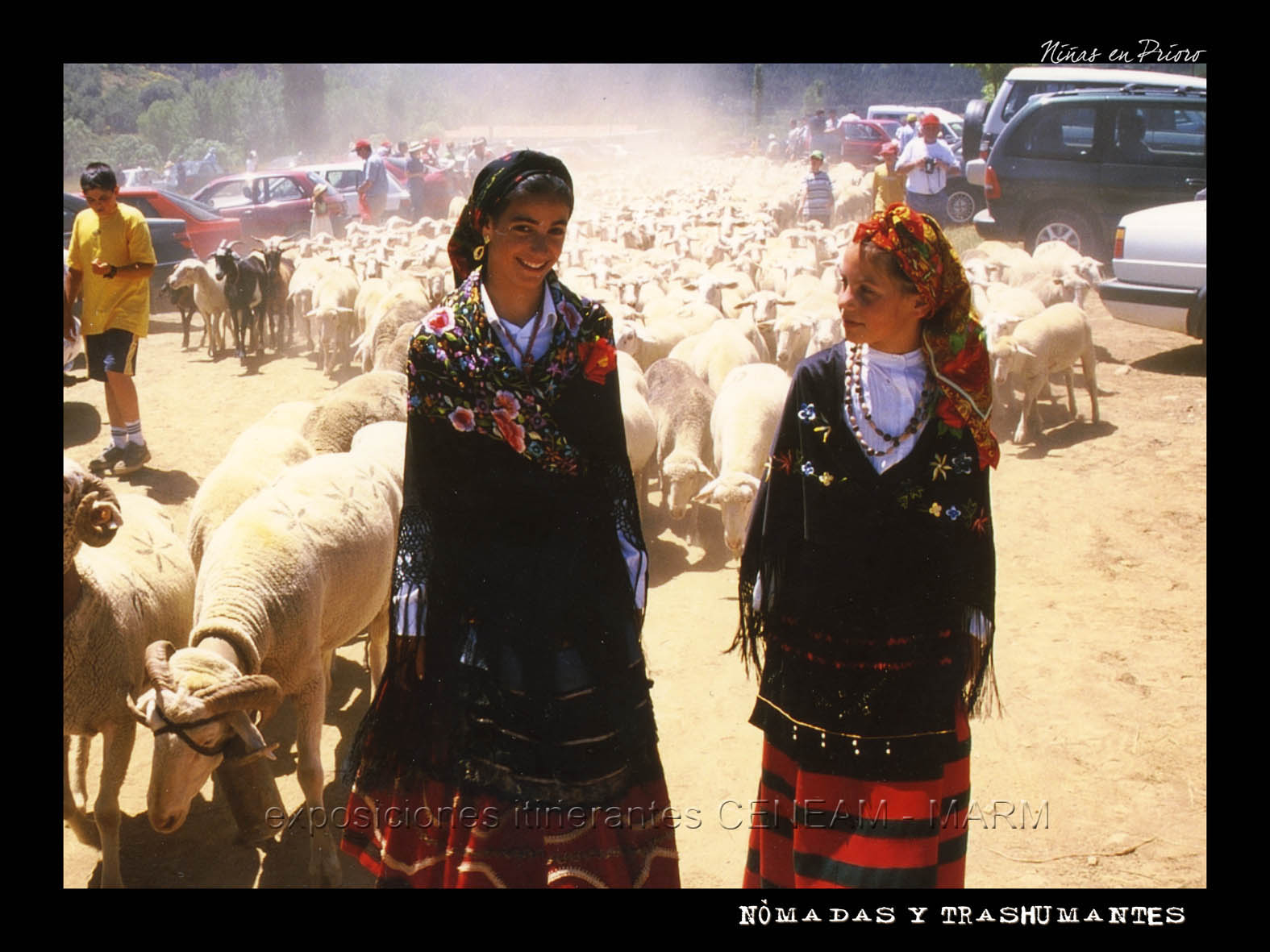 Dos niñas con trajes folclóricos junto al rebaño
Dos niñas con trajes folclóricos junto al rebaño
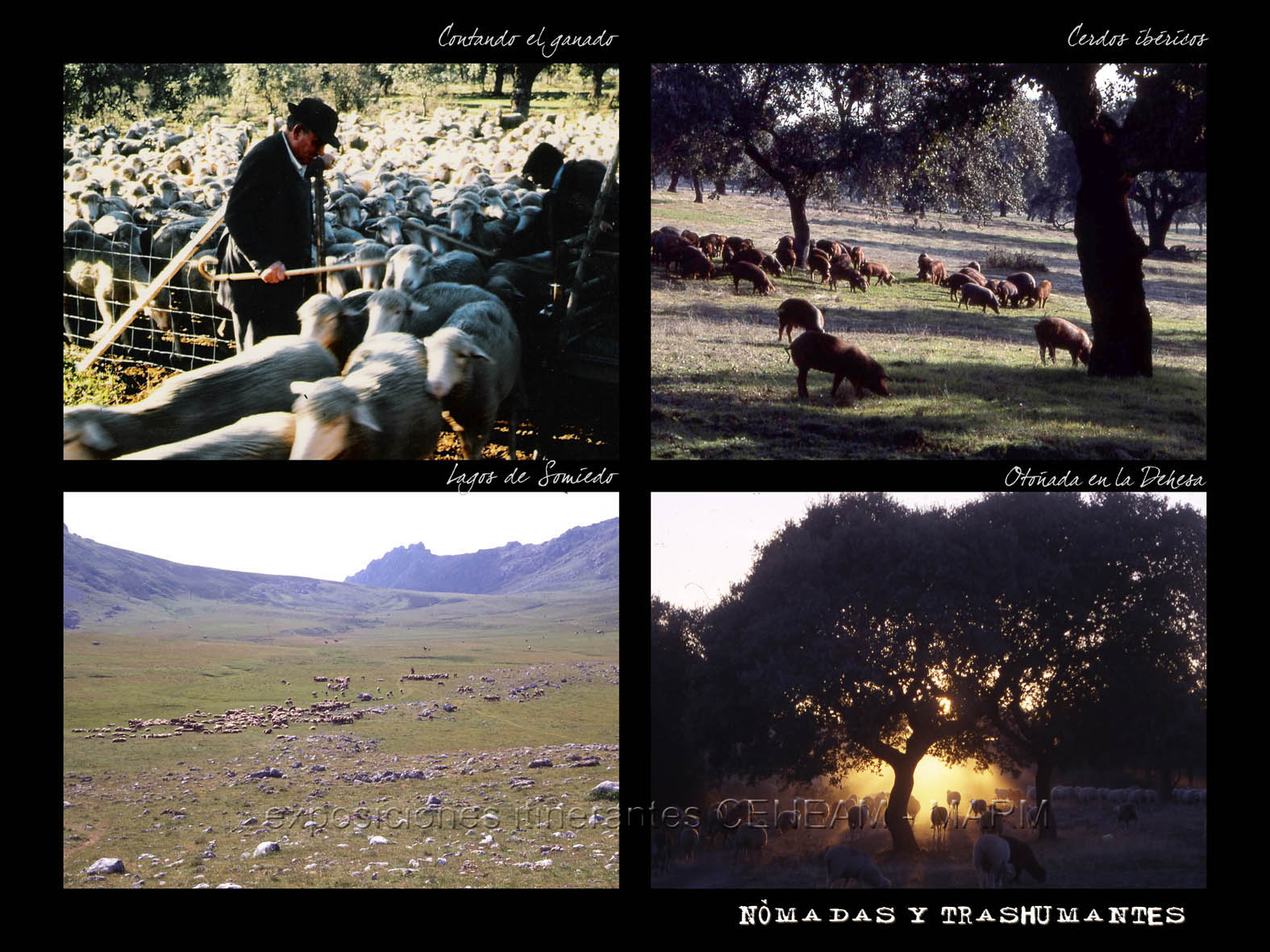 Grupo de cuatro fotos con cerdos en la dehesa y en otra rebaño de ovejas
Grupo de cuatro fotos con cerdos en la dehesa y en otra rebaño de ovejas
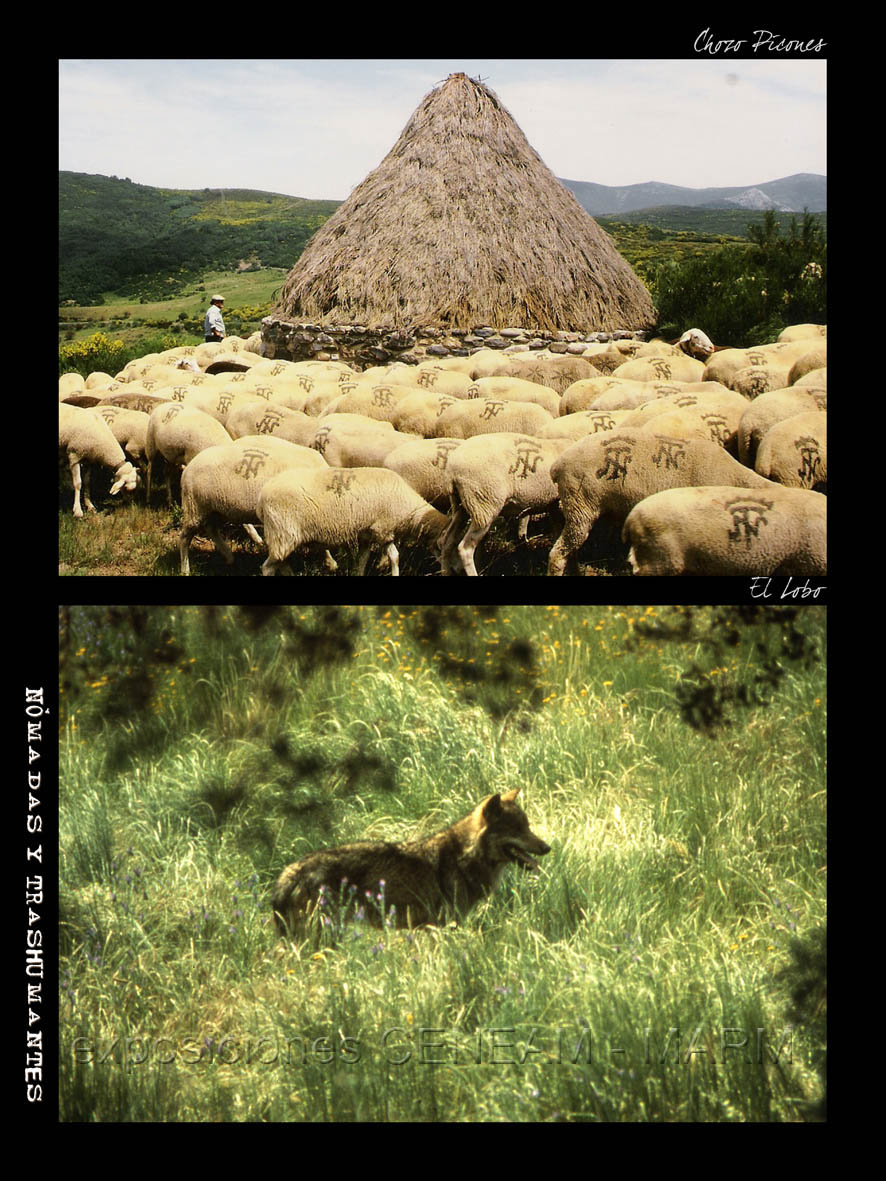 Dos fotos, una de un rebaño y otra de un lobo
Dos fotos, una de un rebaño y otra de un lobo
This page provides information on cookies we use: We use our own and third-party cookies to keep your session active, personalise your experience, and collect anonymous statistics about how you use this website. You can choose to accept all cookies or select which types you'd like to allow. To learn more about the cookies we use, read our Cookies Policy.
We use two types of cookies on this site. First, there are Functional Cookies, which are essential for the website to work properly. They store session data to make your experience smoother and more convenient. On the other hand, Analytical Cookies collect information about how you use the portal, without personal data, helping us provide a better and more tailored service.
Introduction to the Use of Cookies on the MITECO.gob.es Website
Cookies are small files that are stored on your device when you visit a webpage. They are essential tools that help provide many of the services available on the information society. Among other things, cookies allow a webpage to store and retrieve information about a user's browsing habits or their device. Based on this information, they can be used to recognise the user and enhance the service provided.
Types of Cookies
Depending on the entity that manages the domain from which the cookies are sent and processes the data, there are two types of cookies: first-party cookies and third-party cookies.
There is also a second classification based on how long the cookies remain stored in the user's browser: session cookies and persistent cookies.
Finally, cookies can also be classified into five types based on the purpose for which the data is processed: technical cookies, personalisation cookies, analytics cookies, advertising cookies, and behavioural advertising cookies.
For more information on this, you can refer to the Guide on the use of cookies from the Spanish Data Protection Agency.
Cookies used on the website
The web portal of the Ministry for Ecological Transition and the Demographic Challenge uses Adobe Analytics, an analytics tool that helps website and application owners understand how visitors interact with their content. Adobe Analytics uses a small number of cookies to collect data and generate usage statistics for websites. This information is sent anonymously and is not shared with third parties under any circumstances. You can choose to accept or reject these cookies, as they do not affect the portal’s functionality. However, they help provide valuable information that allows us to offer a better and more tailored service. For more information about Adobe Analytics cookies and privacy, please refer to the following links:
Additionally, pages featuring content from social network X will only set cookies if the user is logged into the X site. For more details on these cookies, please refer to the following link: Privacy on Social Network X
Finally, a technical cookie named MITECO-compliance is stored, which is a first-party, technical, and session-based cookie. It manages user consent for the use of cookies on the website, remembering which users have accepted them and which have not, ensuring that those who have accepted are not shown cookie consent messages at the top of the page. This cookie is essential for the proper functioning of the portal.
Cookies Policy Acceptance / Rejection
The Ministry for Ecological Transition and the Demographic Challenge gives you the option to accept or reject cookies that are not essential for the portal's operation. Upon accessing the portal, a message will be displayed in the centre of the page with information about the cookie policy and the following options:
· Firefox
· Chrome
· Safari
